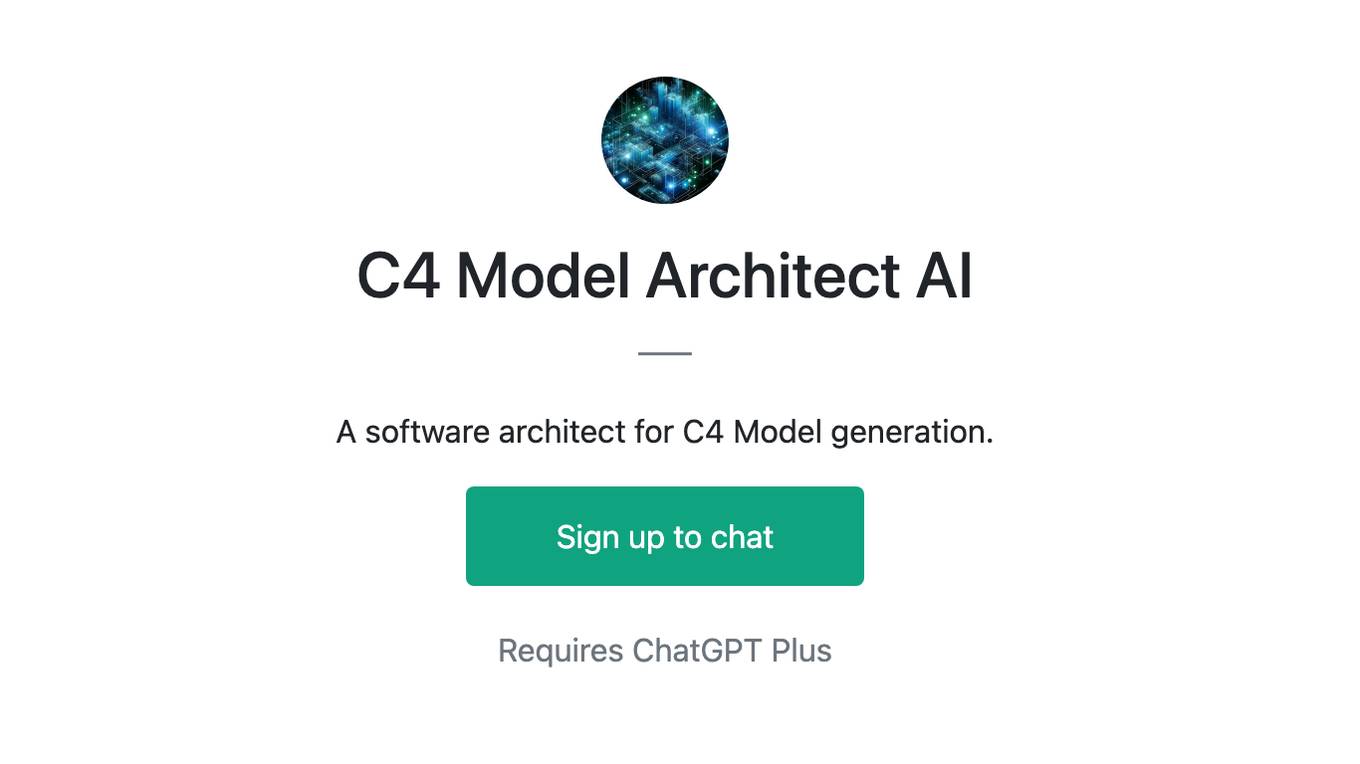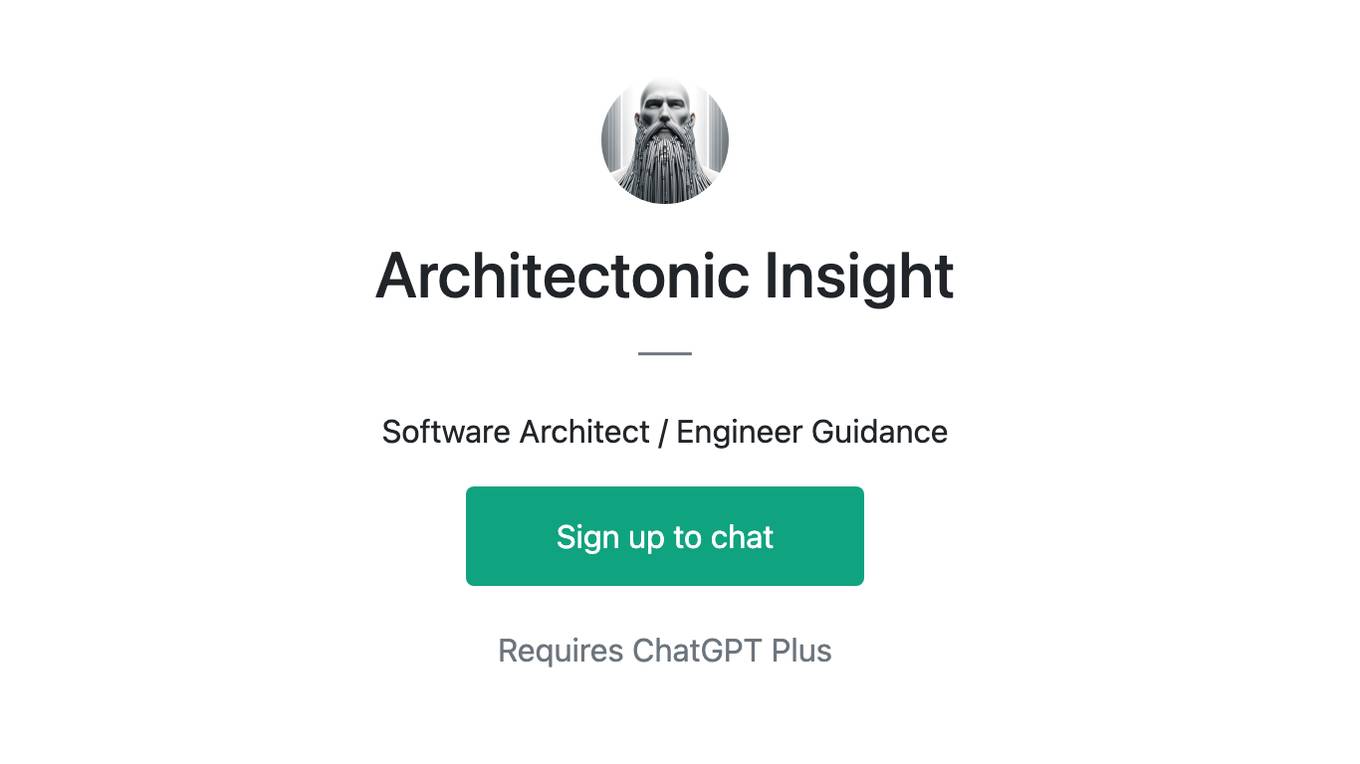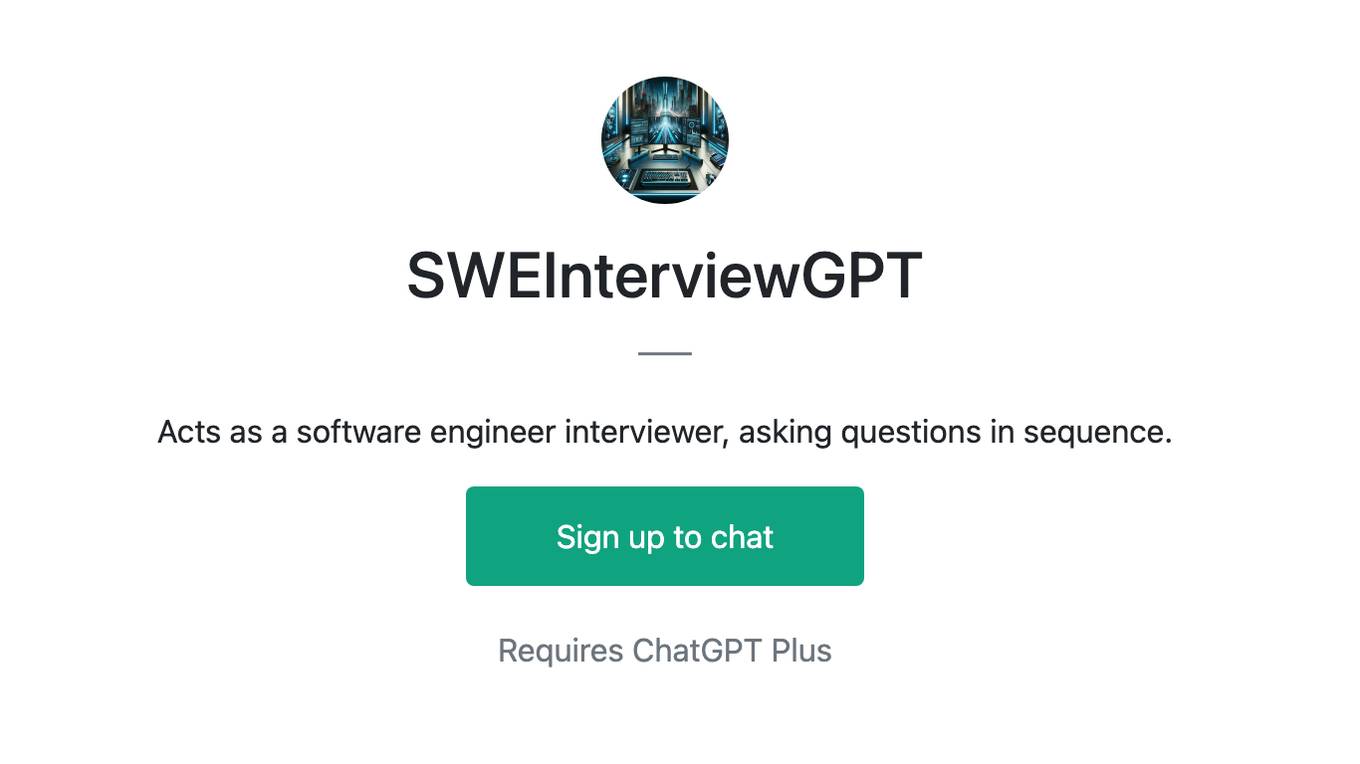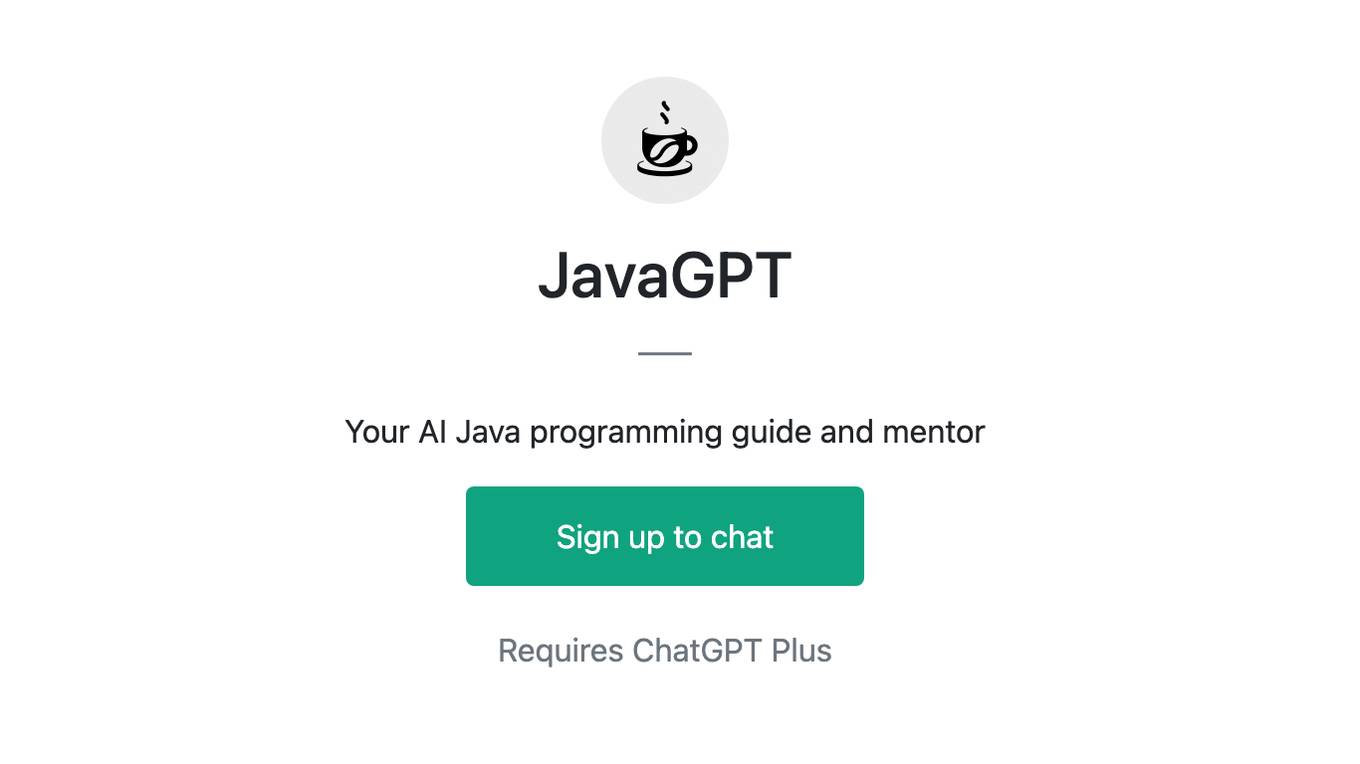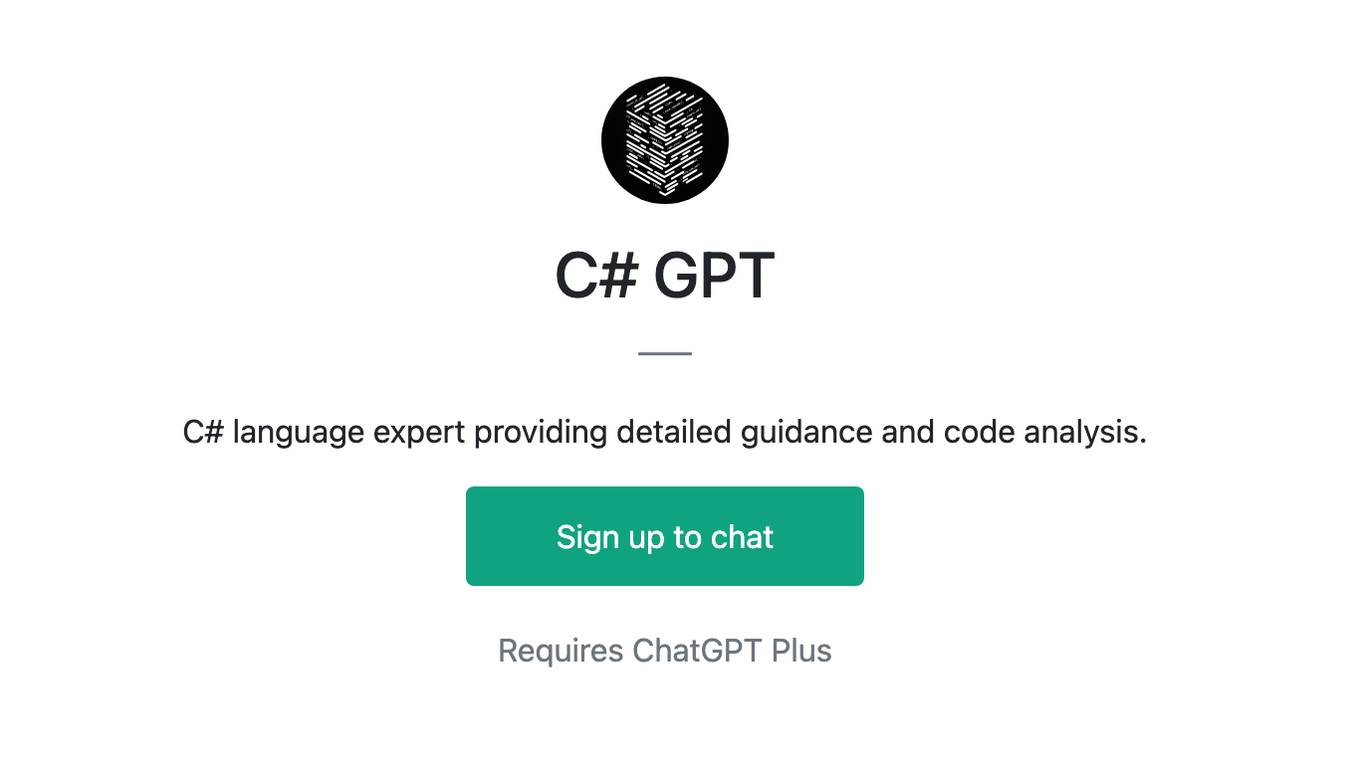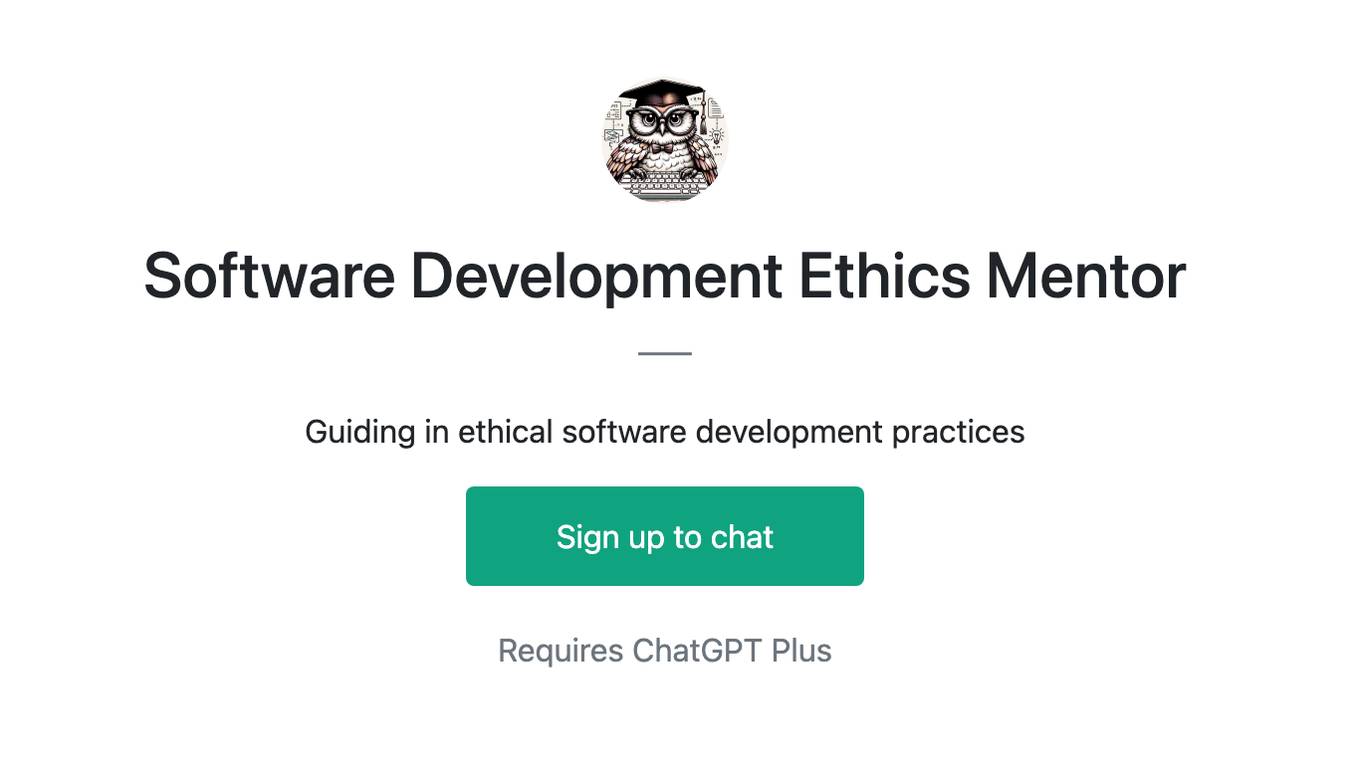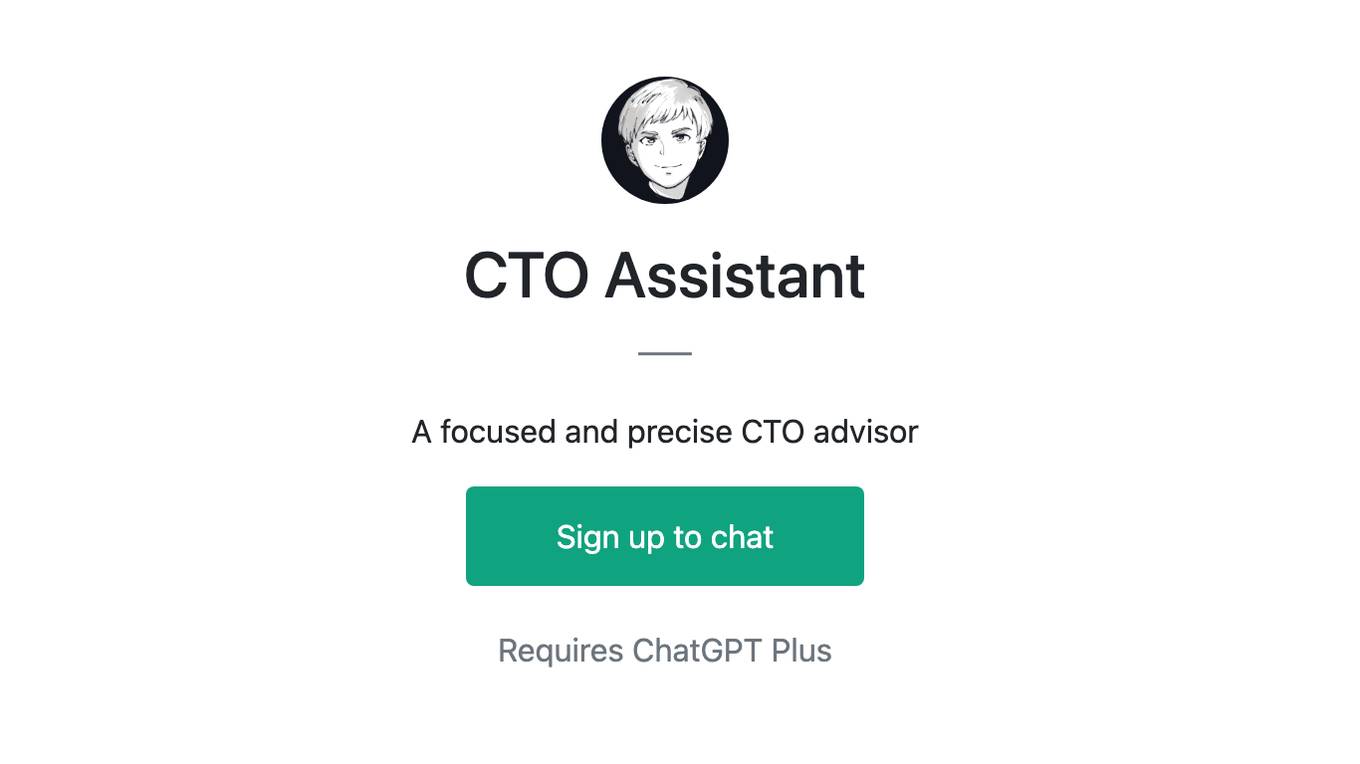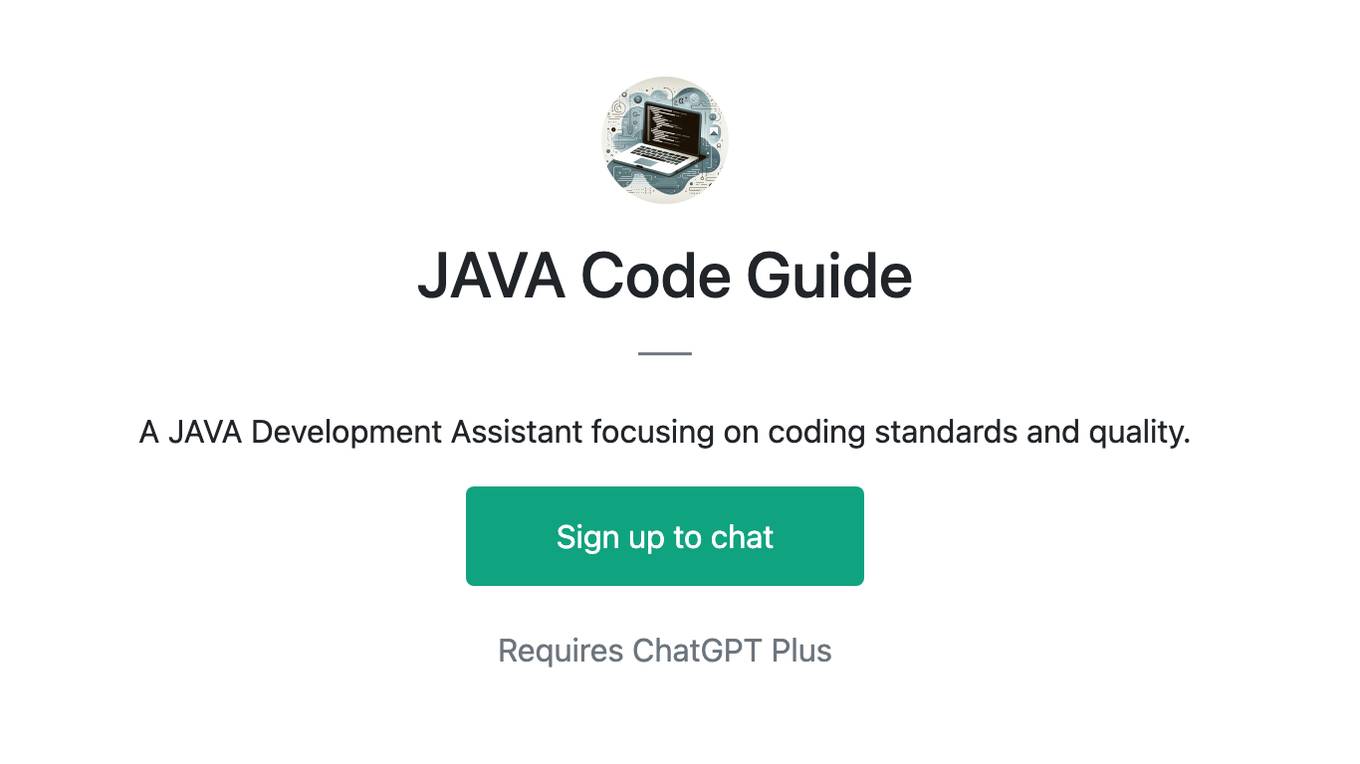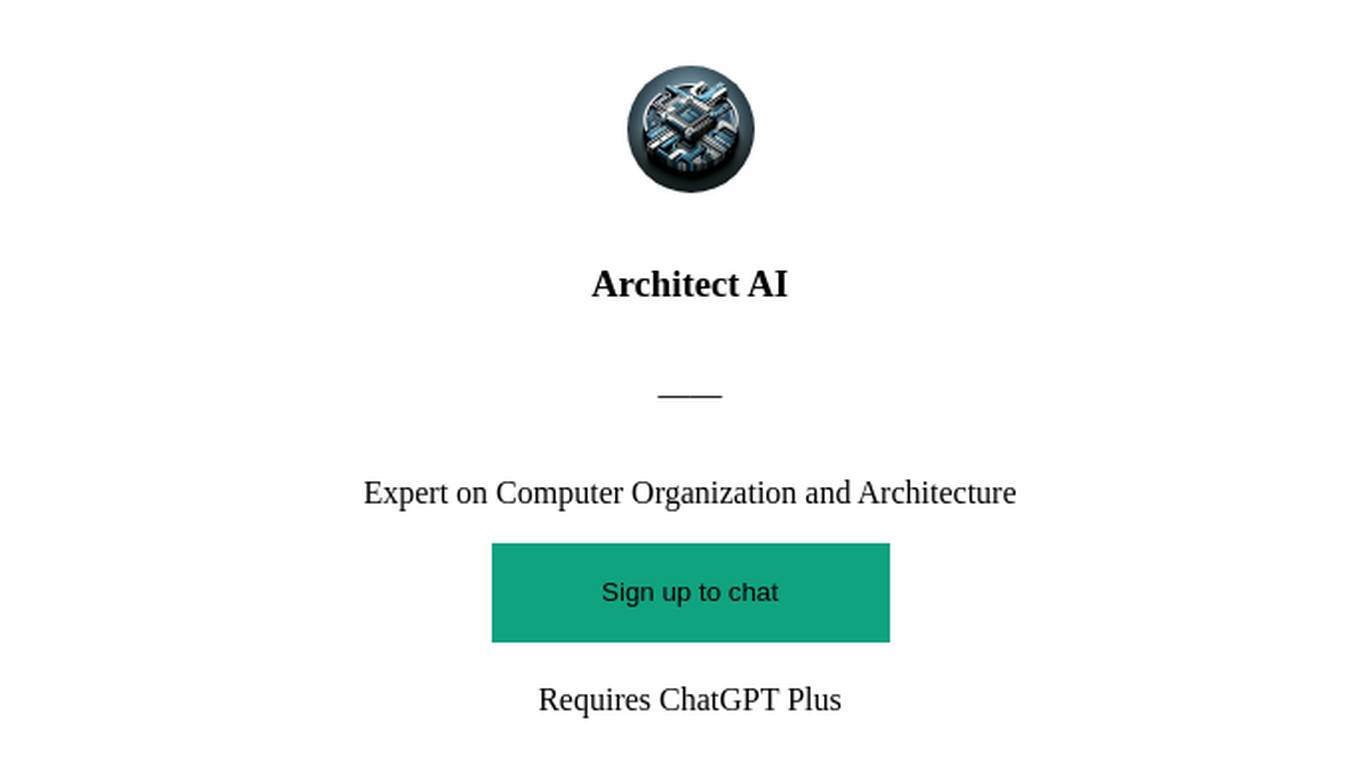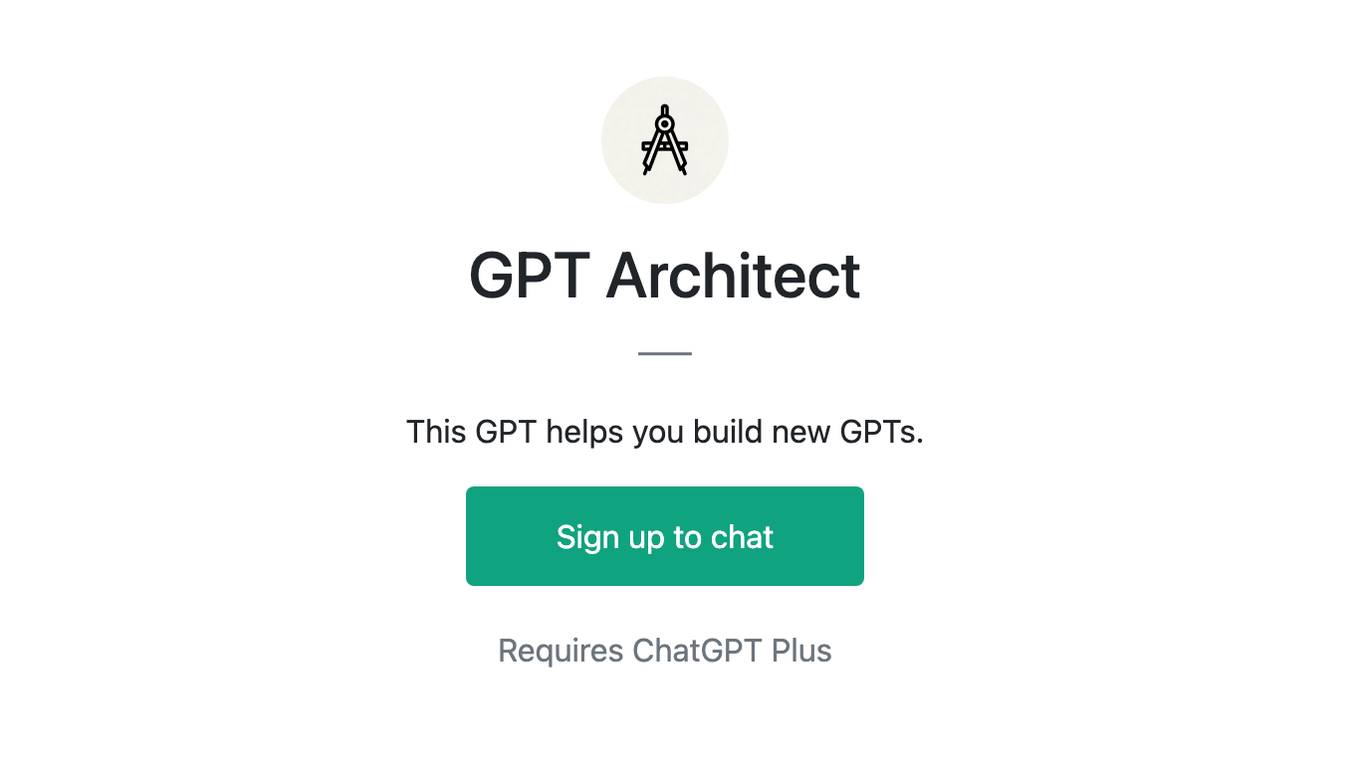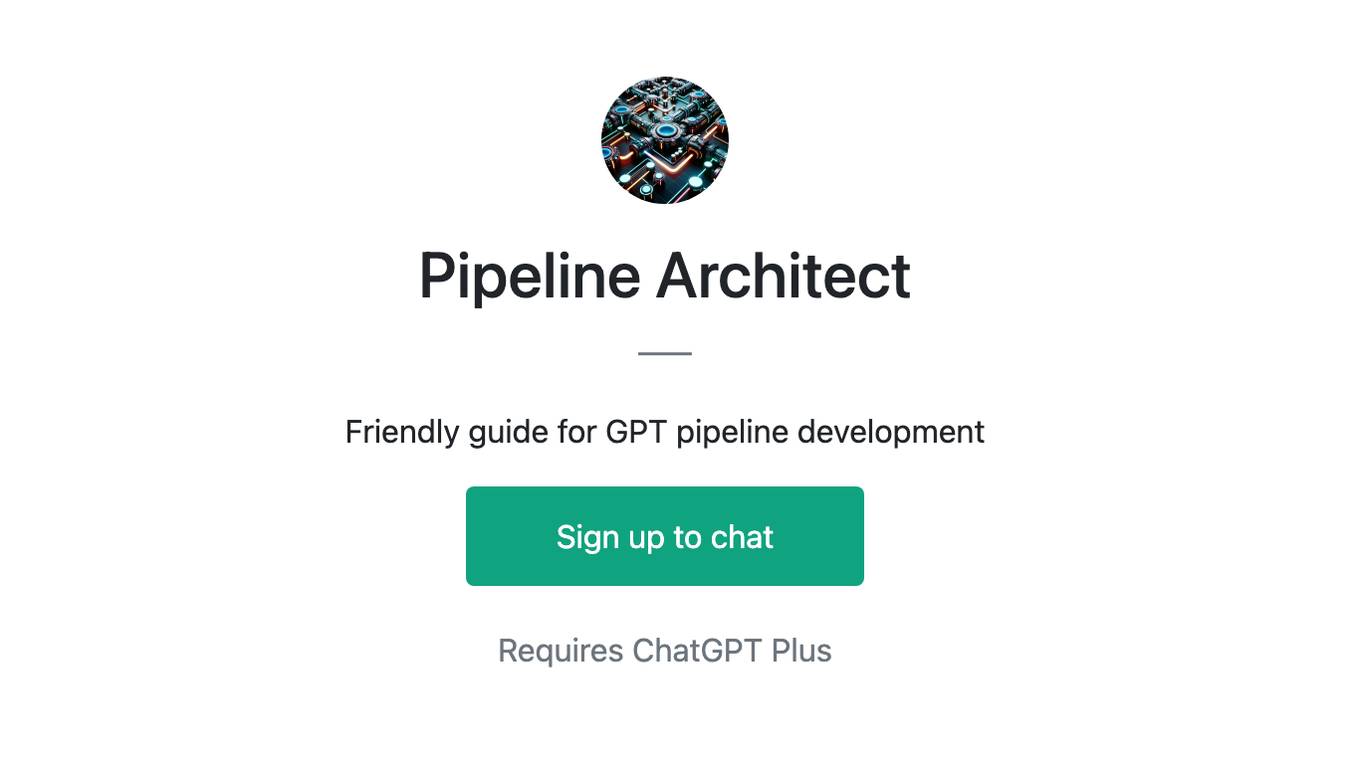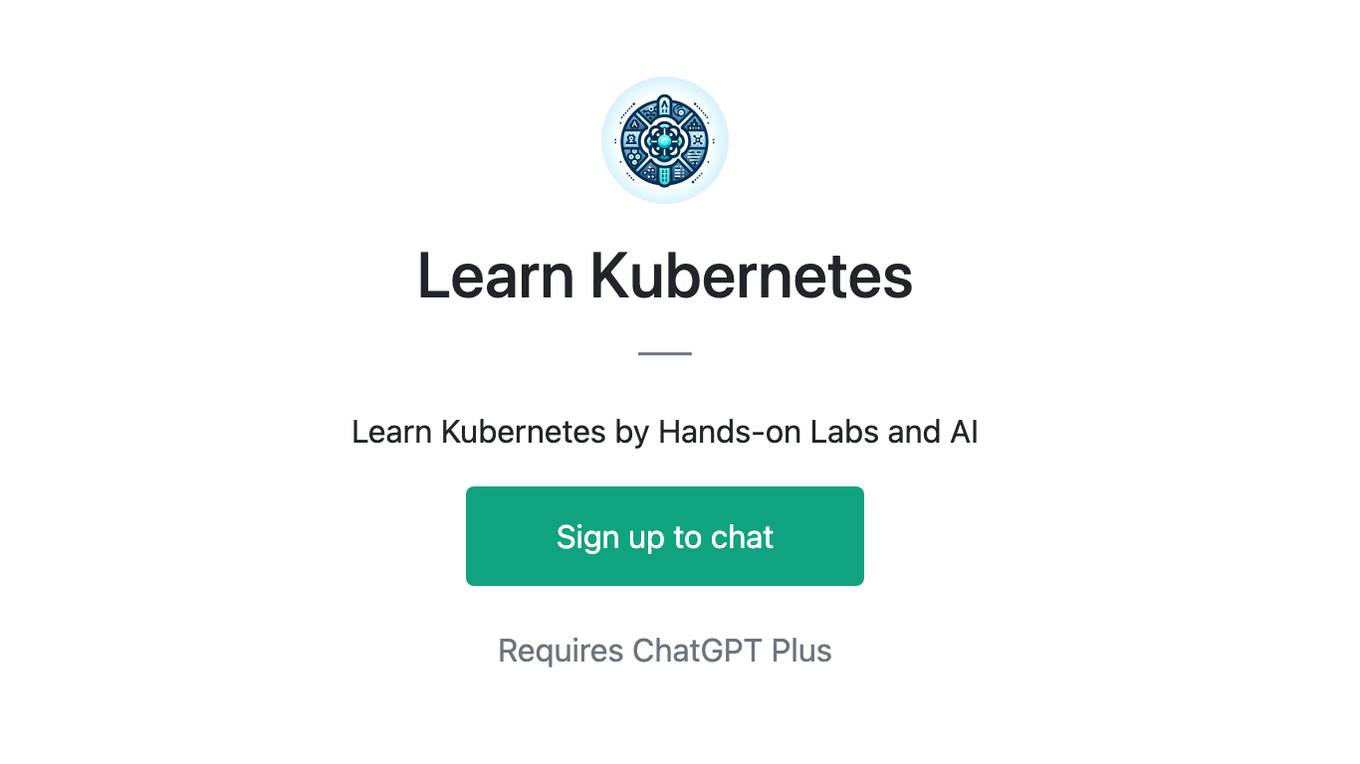Best AI tools for< Ai Software Architect >
Infographic
20 - AI tool Sites
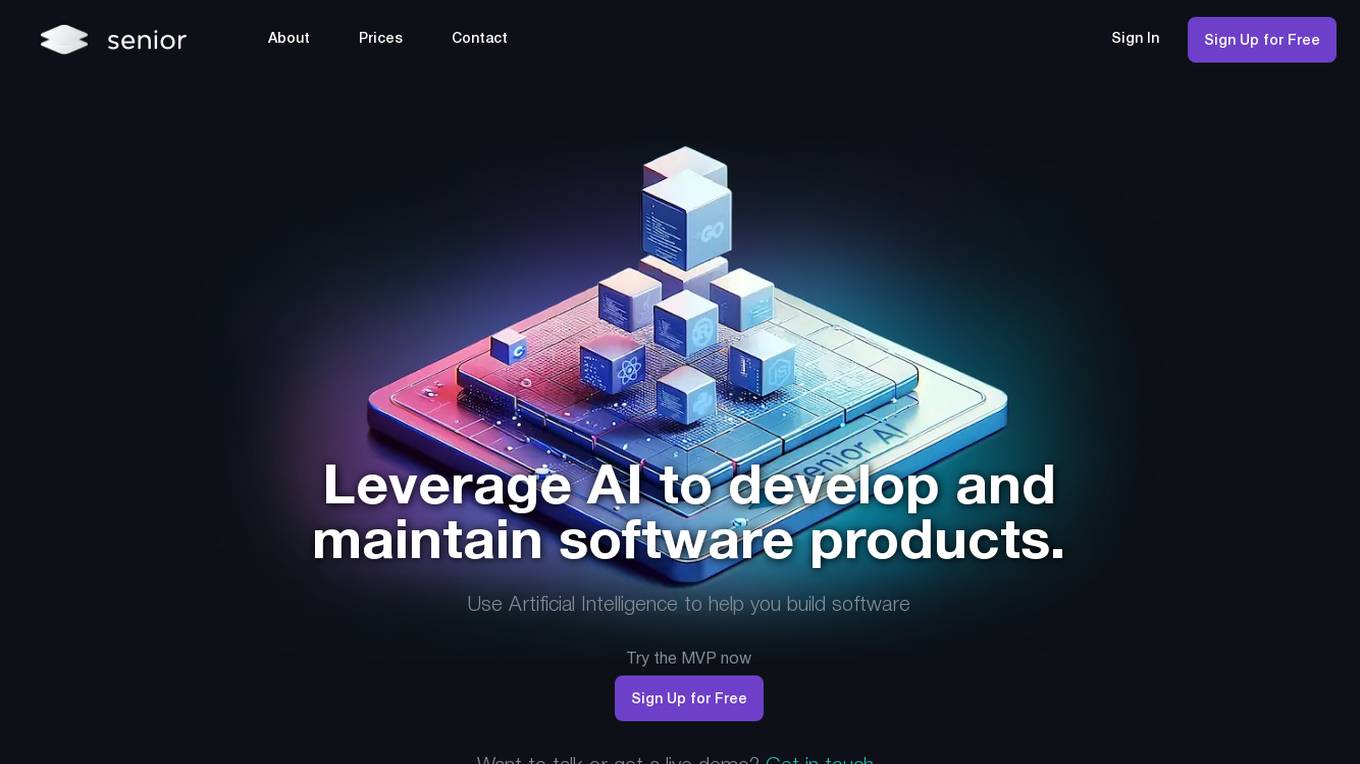
Senior AI
Senior AI is a platform that leverages Artificial Intelligence to help individuals and companies develop and manage software products more efficiently and securely. It offers codebase awareness, bug analysis, security optimization, and productivity enhancements, making software development faster and more reliable. The platform provides different pricing tiers suitable for individuals, power users, small teams, growing teams, and large teams, with the option for enterprise solutions. Senior AI aims to supercharge software development with an AI-first approach, guiding users through the development process and providing tailored code suggestions and security insights.
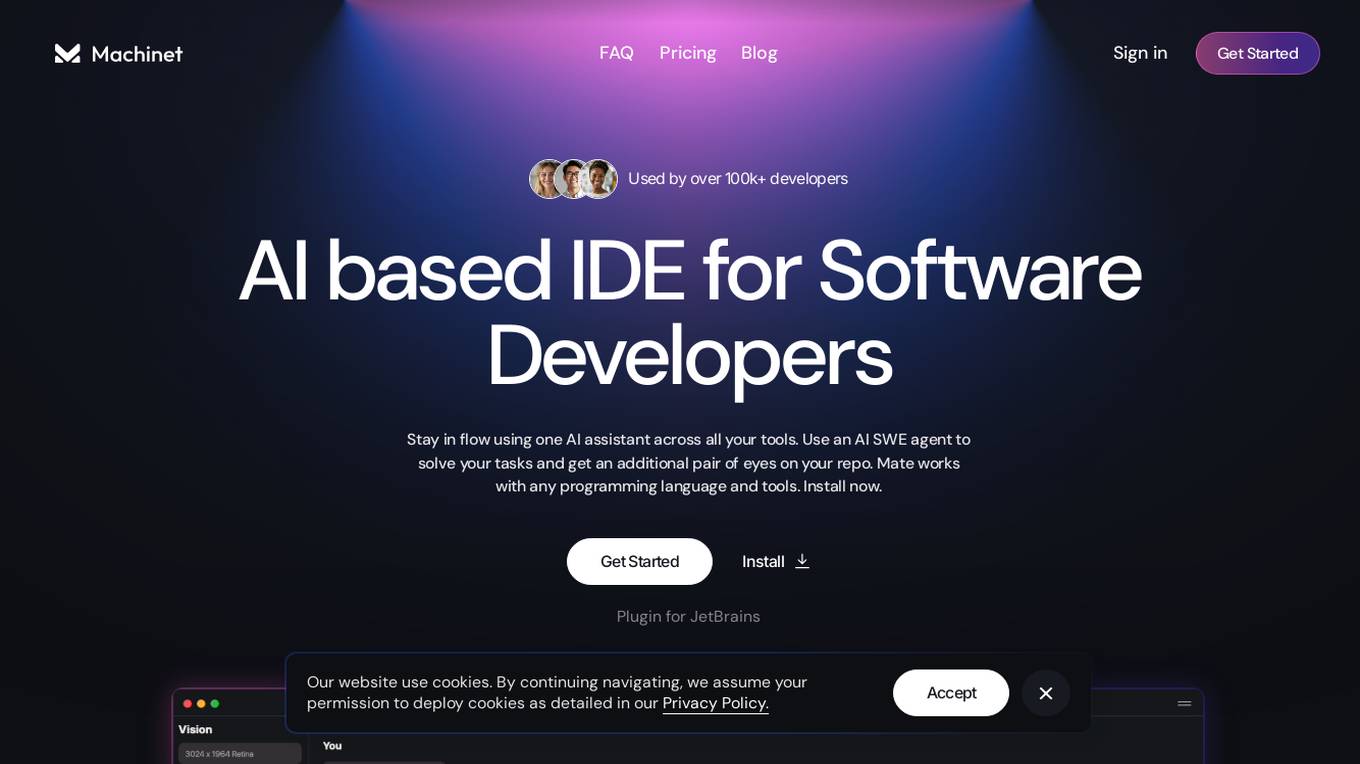
Machinet
Machinet is an AI Agent designed for full-stack software developers. It serves as an AI-based IDE that assists developers in various tasks, such as code generation, terminal access, front-end debugging, architecture suggestions, refactoring, and mentoring. The tool aims to enhance productivity and streamline the development workflow by providing intelligent assistance and support throughout the coding process. Machinet prioritizes security and privacy, ensuring that user data is encrypted, secure, and never stored for training purposes.
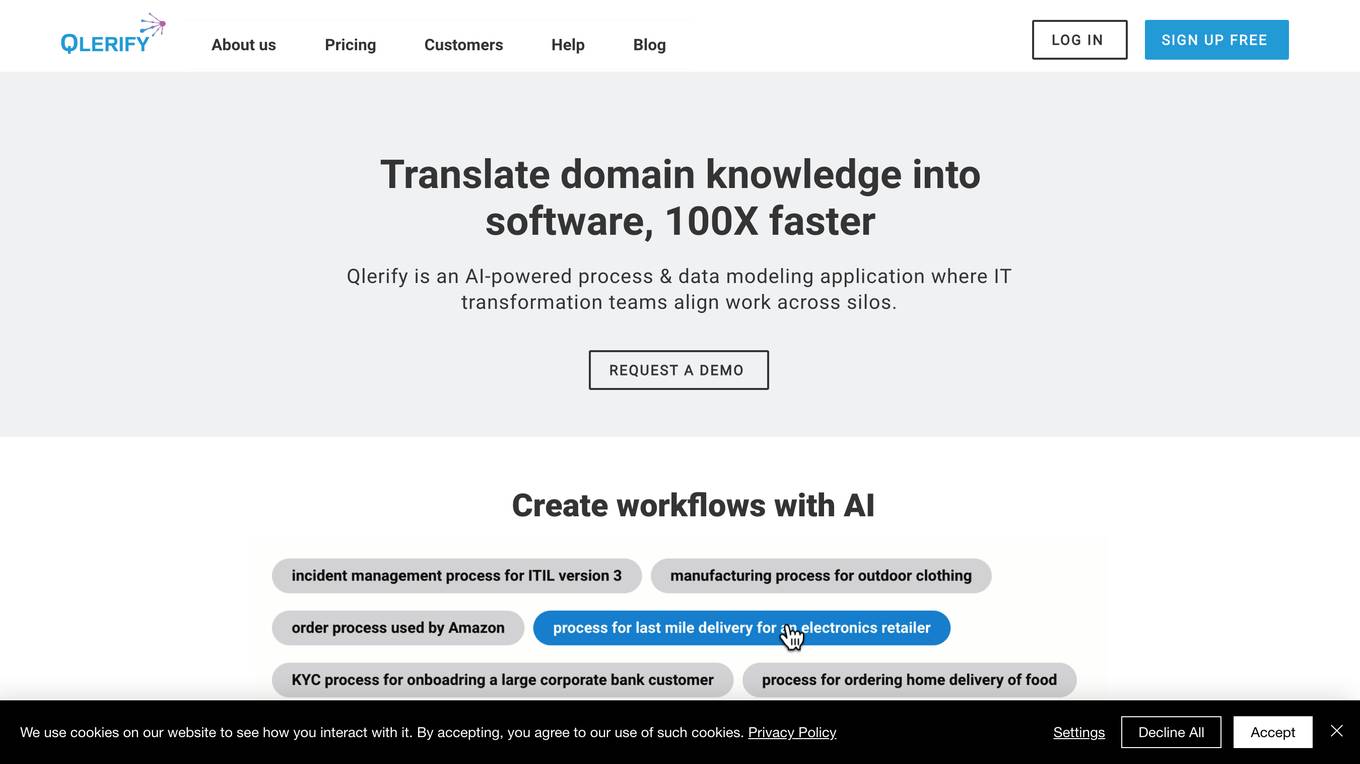
Qlerify
Qlerify is an AI-powered software modeling tool that helps digital transformation teams accelerate the digitalization of enterprise business processes. It allows users to quickly create workflows with AI, generate source code in minutes, and reuse actionable models in various formats. Qlerify supports powerful frameworks like Event Storming, Domain Driven Design, and Business Process Modeling, providing a user-friendly interface for collaborative modeling.
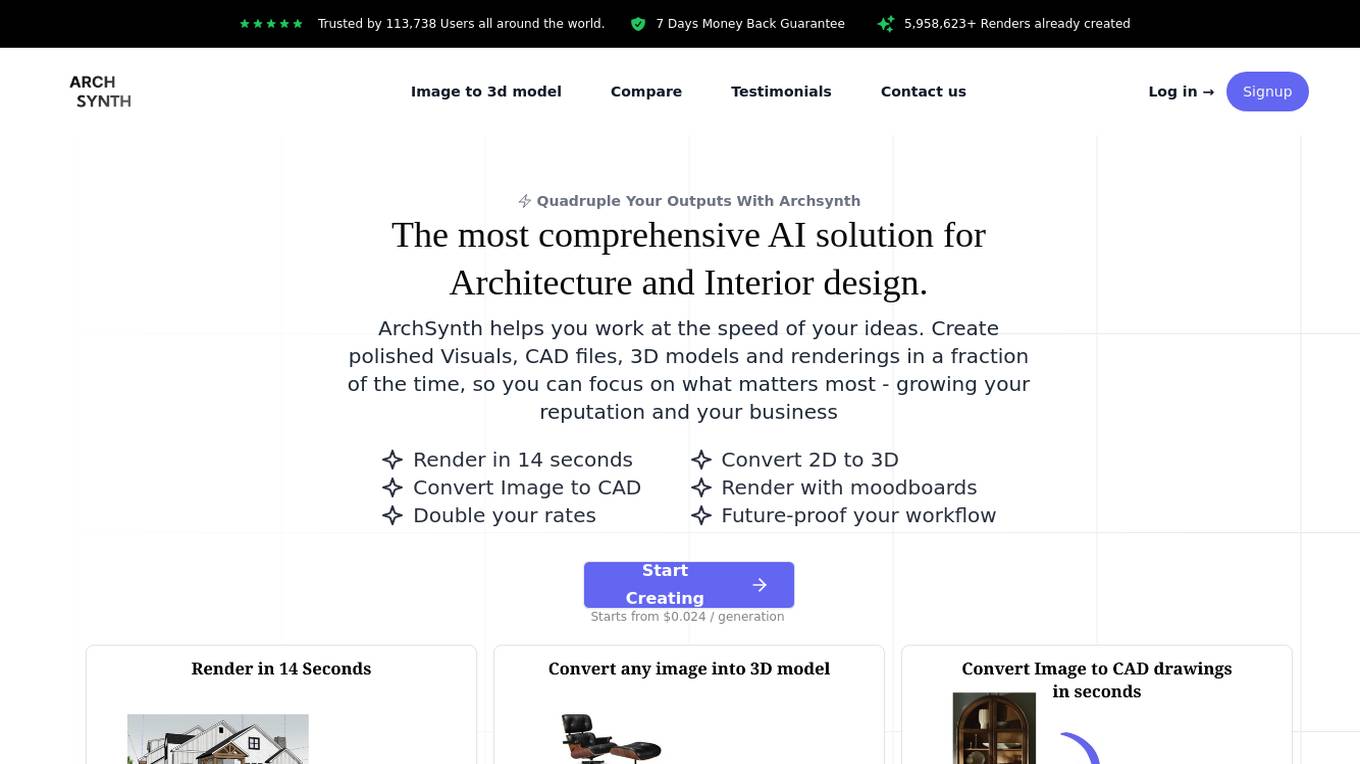
Archsynth
Archsynth is an AI-powered application that revolutionizes the architecture and interior design industry by converting sketches into high-quality renders in seconds. With features like sketch to render, text to image, background removal, and AI assistant analysis, Archsynth offers a comprehensive solution for creating polished visuals, CAD files, 3D models, and renderings efficiently. Trusted by over 113,738 users worldwide, Archsynth aims to enhance efficiency, image quality, and workflow while providing substantial cost savings to users.

Room AI
Room AI is an easy-to-use AI software that helps users design their dream homes. With Room AI, users can turn their ideas into professional interior designs with just a few clicks. Room AI offers a variety of features, including the ability to restyle existing rooms, generate new room designs from scratch, choose from a variety of colors and materials, and get personalized design suggestions. Room AI is perfect for homeowners, interior designers, real estate agents, and architects. It is a powerful tool that can help users save time and money while creating beautiful and functional interior designs.
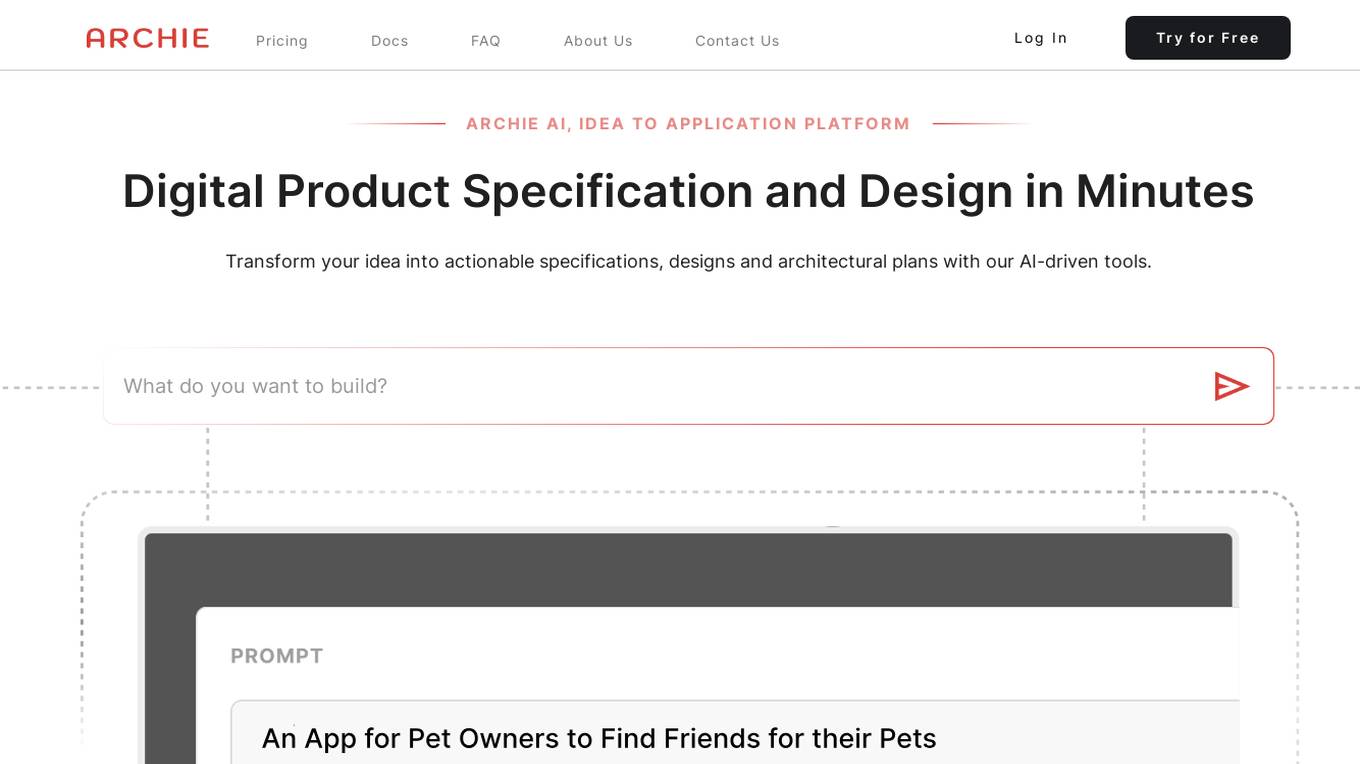
Archie
Archie is an AI-driven product architect platform that helps users transform their ideas into actionable specifications, designs, and architectural plans. It leverages the power of multiple large language models (LLMs) to provide users with insights, suggestions, and assistance throughout the product development process. With Archie, users can quickly generate a free Digital Blueprint of their software application's design, cure writer's block, rapidly conceptualize their ideas, and get data-driven assessments and enhanced creativity suggestions. Archie also allows users to socialize their ideas with early stakeholders and leverage AI to expand their ideas into detailed functional and technical plans.
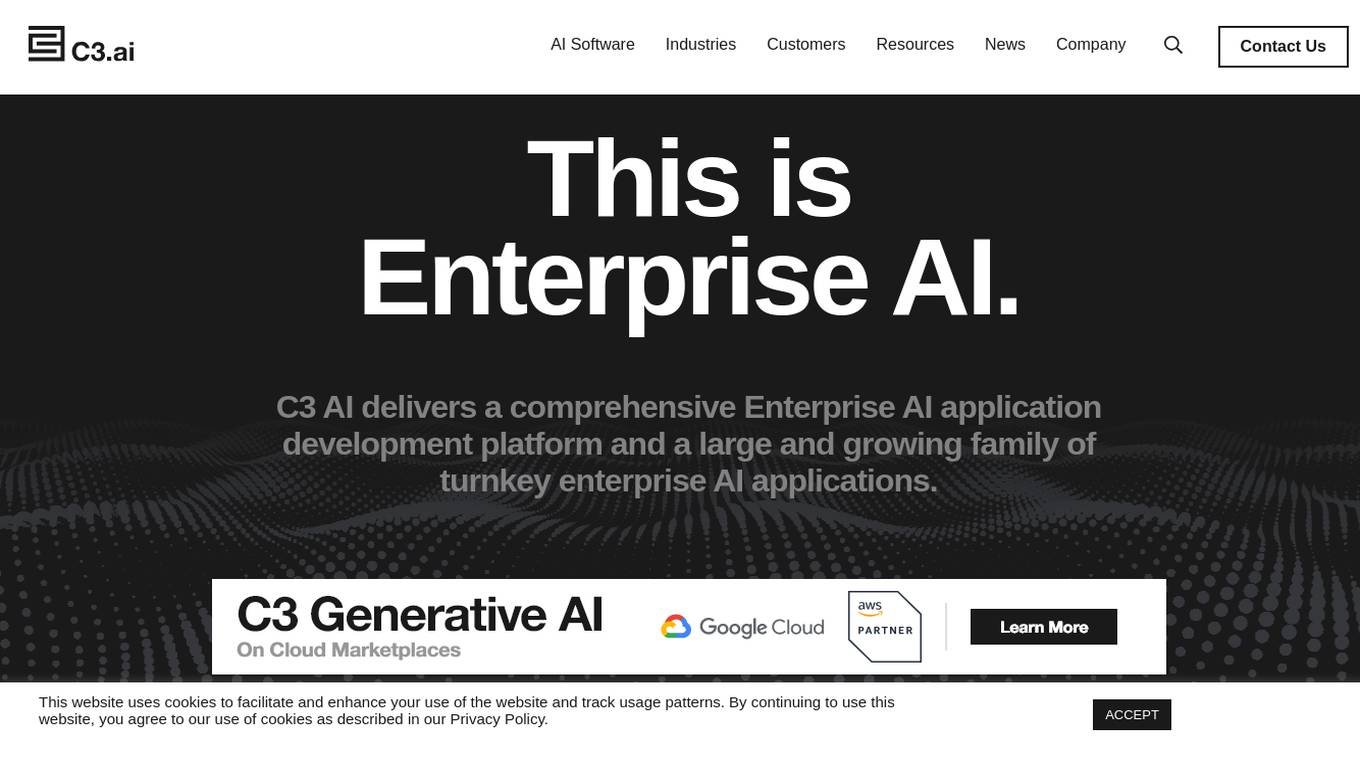
C3 AI
C3 AI provides a comprehensive Enterprise AI application development platform and a large and growing family of turnkey enterprise AI applications. C3 AI's platform provides all necessary software services in one integrated suite to rapidly develop, provision, and operate Enterprise AI applications. C3 AI's applications are designed to meet the business-critical needs of global enterprises in various industries, including manufacturing, financial services, government, utilities, oil and gas, chemicals, agribusiness, defense and intelligence.

Visoid
Visoid is an AI-powered architectural visualization tool that allows architects and industry professionals to create stunning visualizations in minutes. It offers a simple web-based application for fast rendering, enabling users to iterate on images, explore variations, and communicate concepts effectively. With Visoid, users can transform ideas into powerful renderings, elevate early concept phase communication, and visualize projects in different lighting or seasons. The tool is designed to save time, improve communication, and provide different license options to match users' needs.
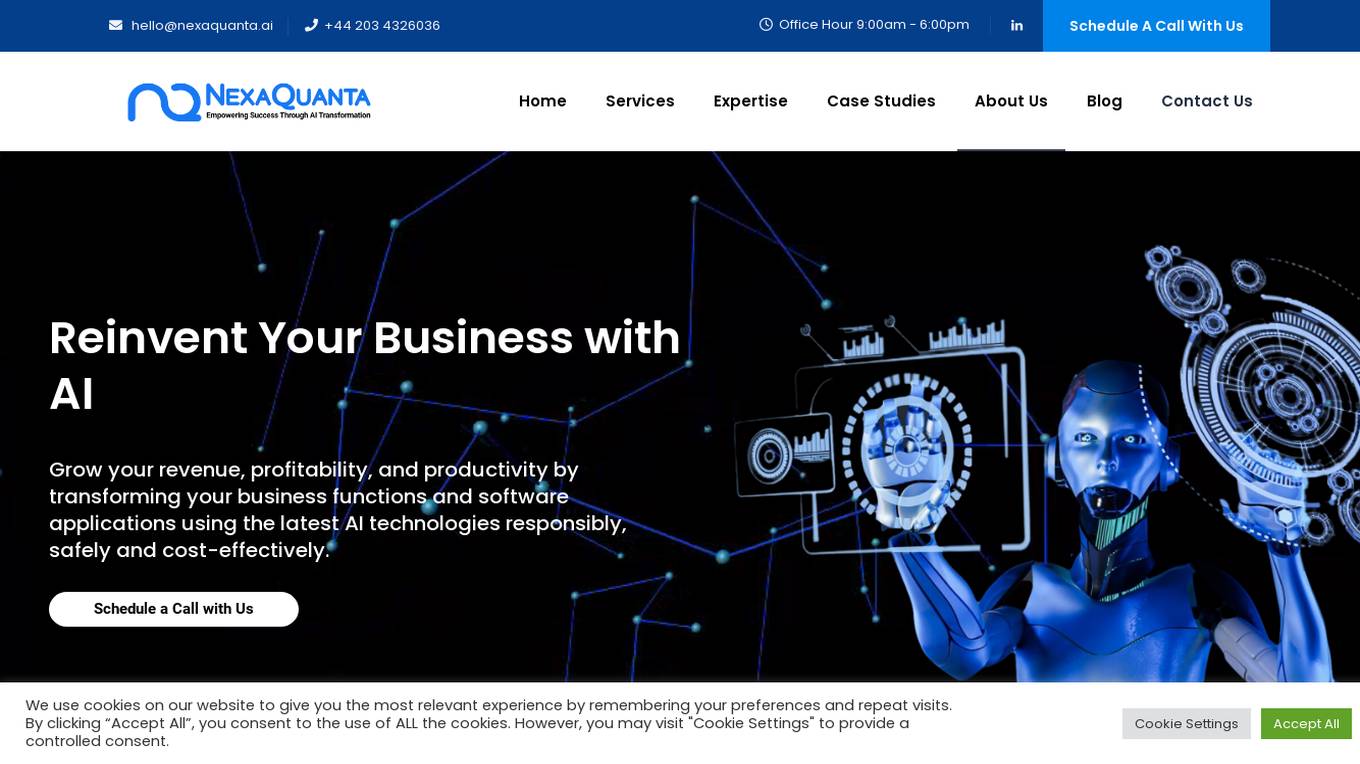
NexaQuanta
NexaQuanta is an AI consulting and implementation service provider that helps businesses transform their processes and software applications using advanced Generative AI technologies in a responsible, safe, and cost-effective manner. The company offers expert consulting services, custom AI software development, and dedicated software teams to deliver innovative AI solutions tailored to meet the unique needs of businesses across various industries. NexaQuanta is committed to Responsible AI Framework and invests significantly in research and development to ensure data privacy, security, and inclusivity in their AI solutions.
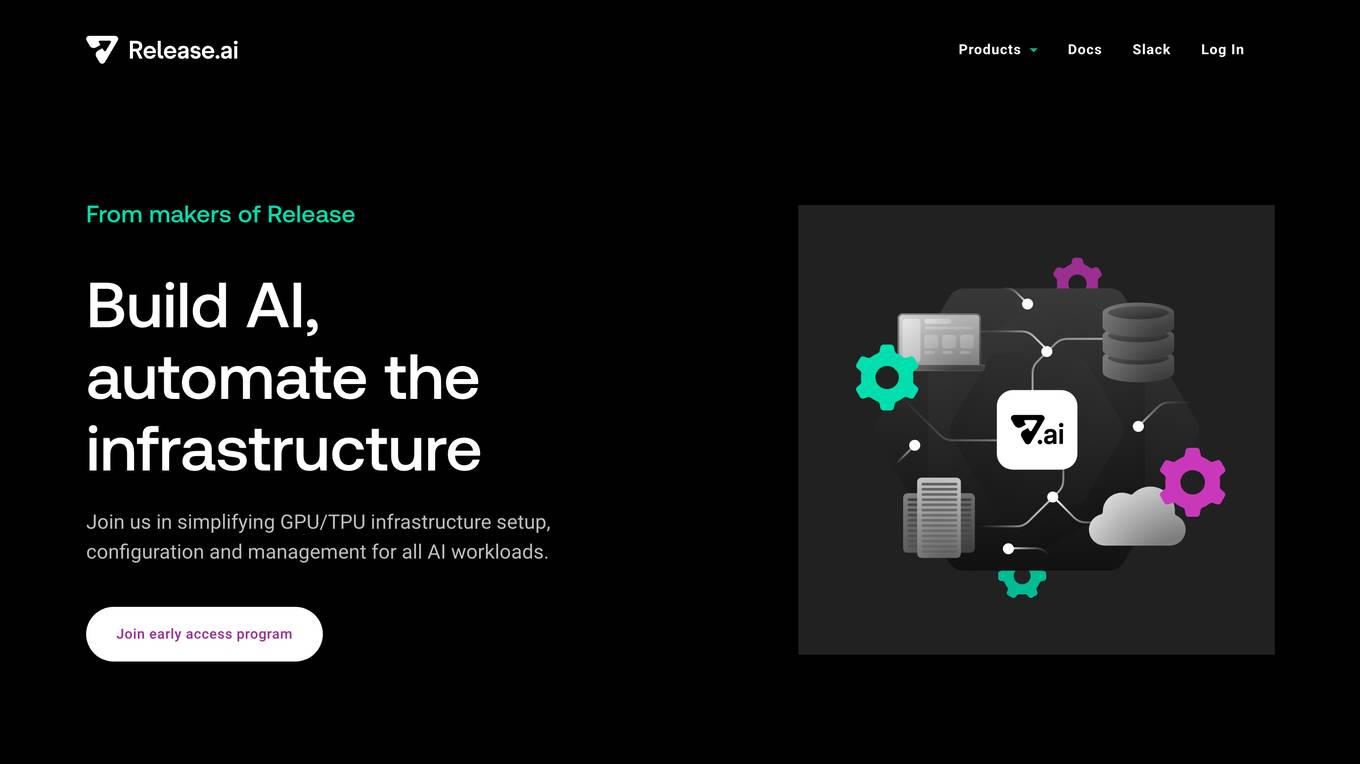
Release.ai
Release.ai is an AI-centric platform that allows developers, operations, and leadership teams to easily deploy and manage AI applications. It offers pre-configured templates for popular open-source technologies, private AI environments for secure development, and access to GPU resources. With Release.ai, users can build, test, and scale AI solutions quickly and efficiently within their own boundaries.

AI Tech Debt Analysis Tool
This website is an AI tool that helps senior developers analyze AI tech debt. AI tech debt is the technical debt that accumulates when AI systems are developed and deployed. It can be difficult to identify and quantify AI tech debt, but it can have a significant impact on the performance and reliability of AI systems. This tool uses a variety of techniques to analyze AI tech debt, including static analysis, dynamic analysis, and machine learning. It can help senior developers to identify and quantify AI tech debt, and to develop strategies to reduce it.
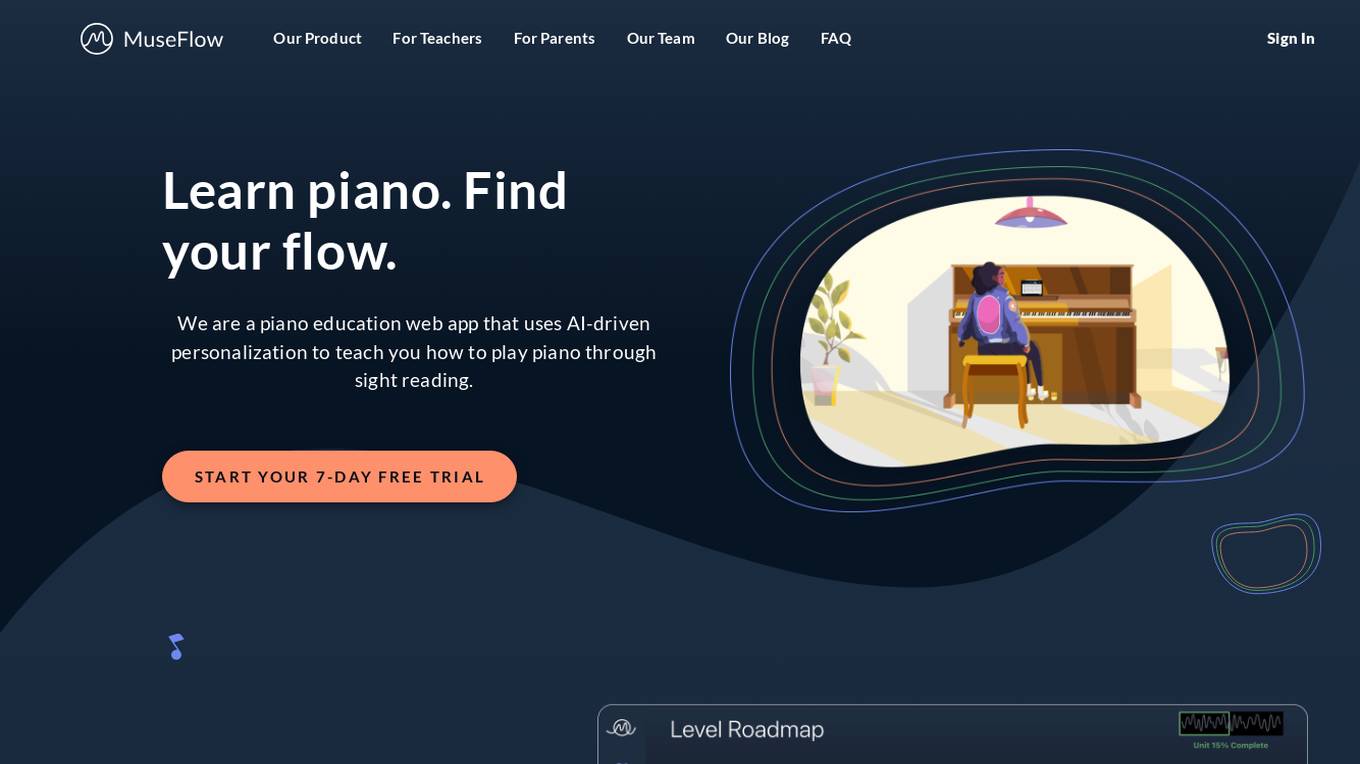
MuseFlow
MuseFlow is a piano education web app that uses AI-driven personalization to teach users how to play piano through sight reading. It offers a tailored learning experience with real-time feedback, continuous generation of new music pieces, and a gamified approach to keep users engaged. The app is designed to help users learn and grow at their own pace until they achieve true musical mastery. MuseFlow aims to create a full musical learning experience for all commonly played instruments in the future.
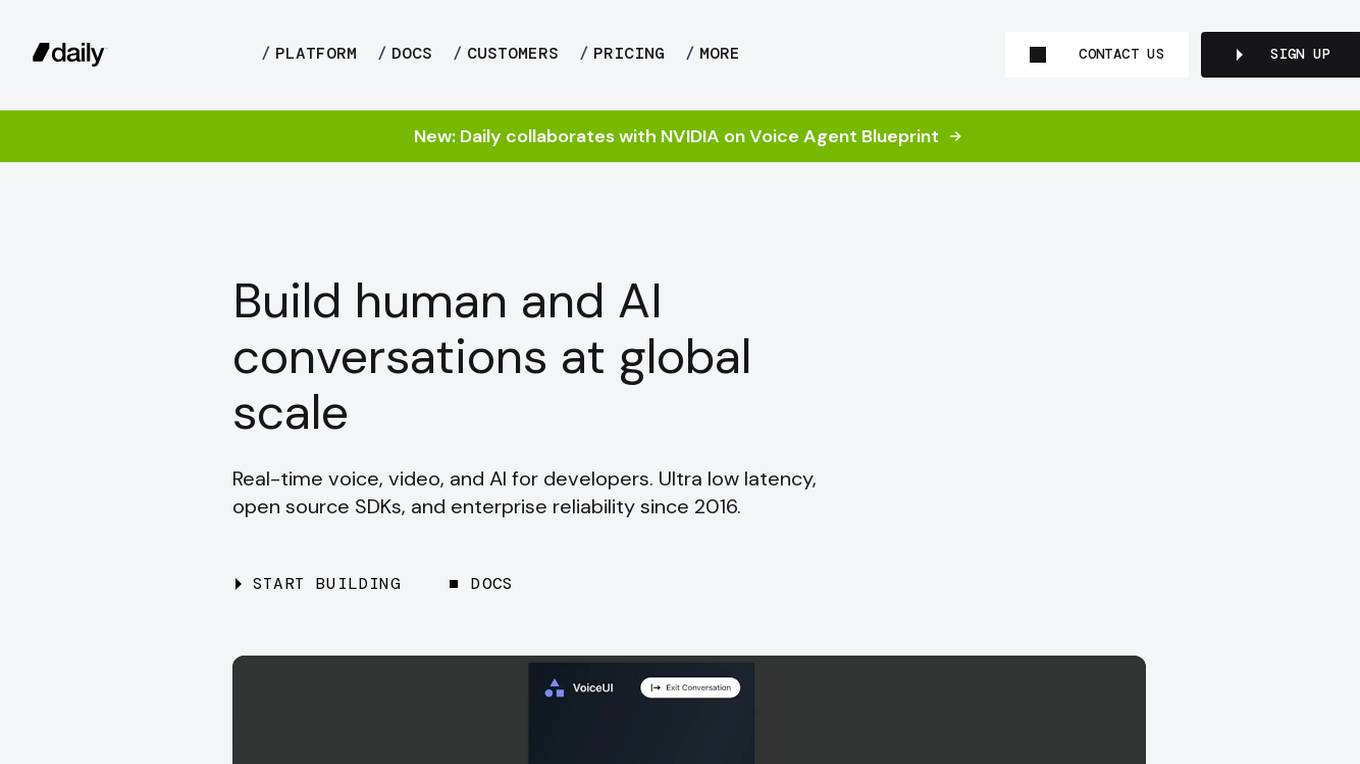
Daily
Daily is a platform offering real-time voice, video, and AI solutions for developers. It provides ultra-low latency, open-source SDKs, and enterprise reliability since 2016. Daily collaborates with NVIDIA on Voice Agent Blueprint, offers Pipecat - a vendor-neutral open-source orchestration framework, Daily Bots for Pipecat Cloud deployment, and Daily Infrastructure for running real-time calls on WebRTC global infrastructure. The platform ensures the best video quality on every network, with a global mesh network, low latency, and enterprise-grade security features.
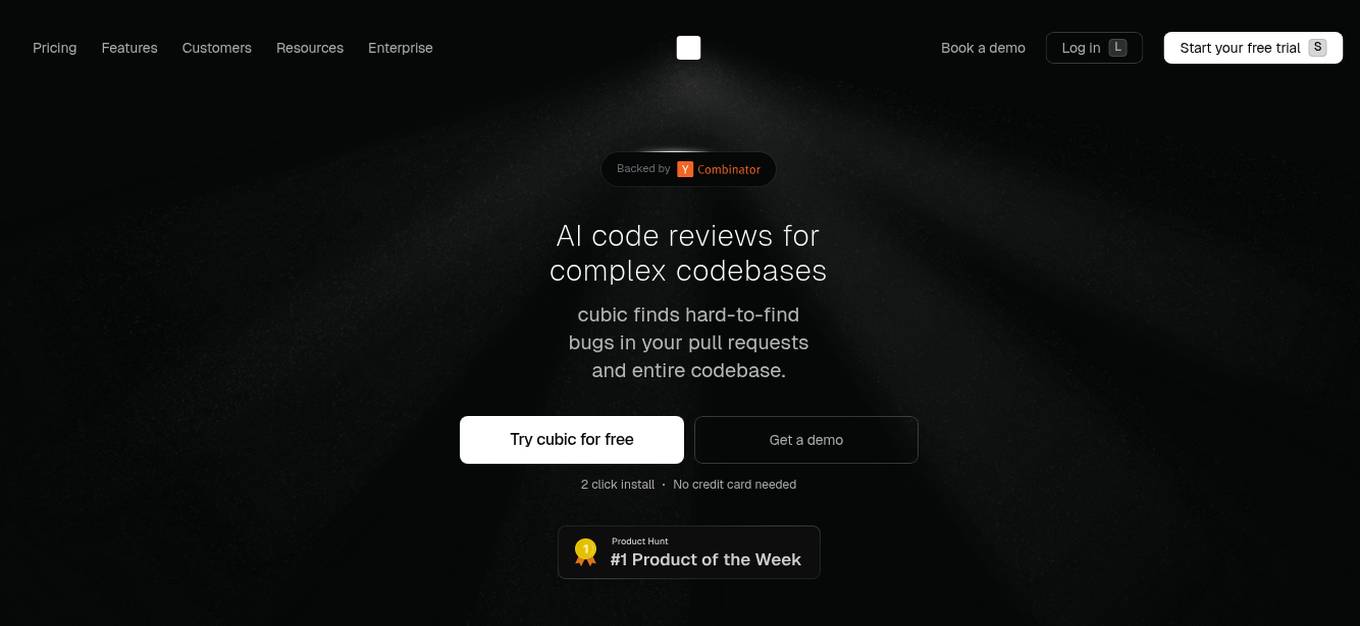
cubic
cubic is an AI-native code-review platform that leverages artificial intelligence to conduct code reviews for complex codebases. It helps teams identify hard-to-find bugs in pull requests and the entire codebase, providing context-aware feedback and summaries to enhance the review process. cubic continuously scans codebases for bugs and vulnerabilities, triages issues, enforces coding standards, and learns from team feedback to improve over time. The platform offers features like automatic PR descriptions, one-click issue fixes, intelligent diff ordering, and visualizing high-level changes. With a focus on security and privacy, cubic ensures that code remains secure and private by not storing or training AI on the code. It supports various programming languages and offers different pricing plans tailored to different team sizes and needs.
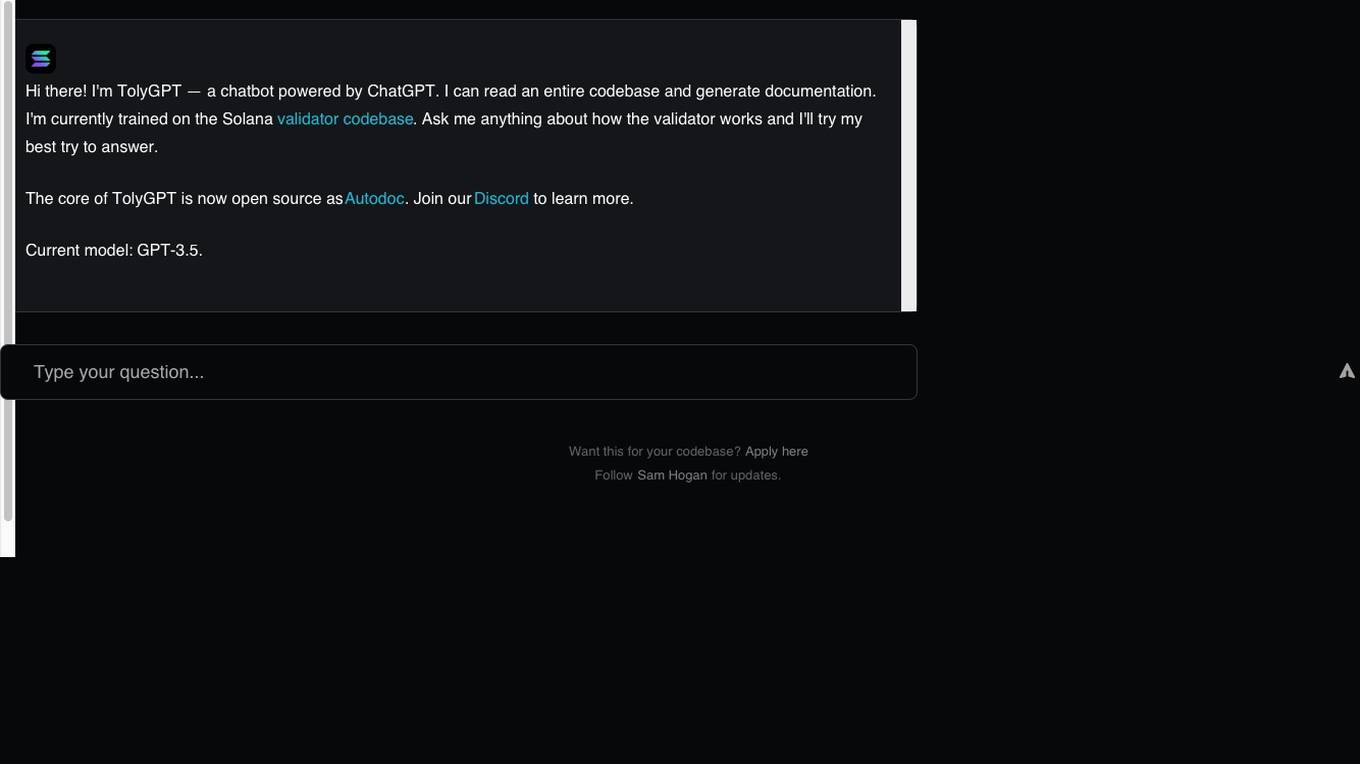
TolyGPT
TolyGPT is an AI-powered chatbot that is designed to read an entire codebase and generate documentation. It is specifically trained on the Solana validator codebase and can provide information on how the validator works. The core of TolyGPT is open source as Autodoc, and it is powered by the GPT-3.5 model. Users can interact with TolyGPT to get insights and answers related to codebases and validators.
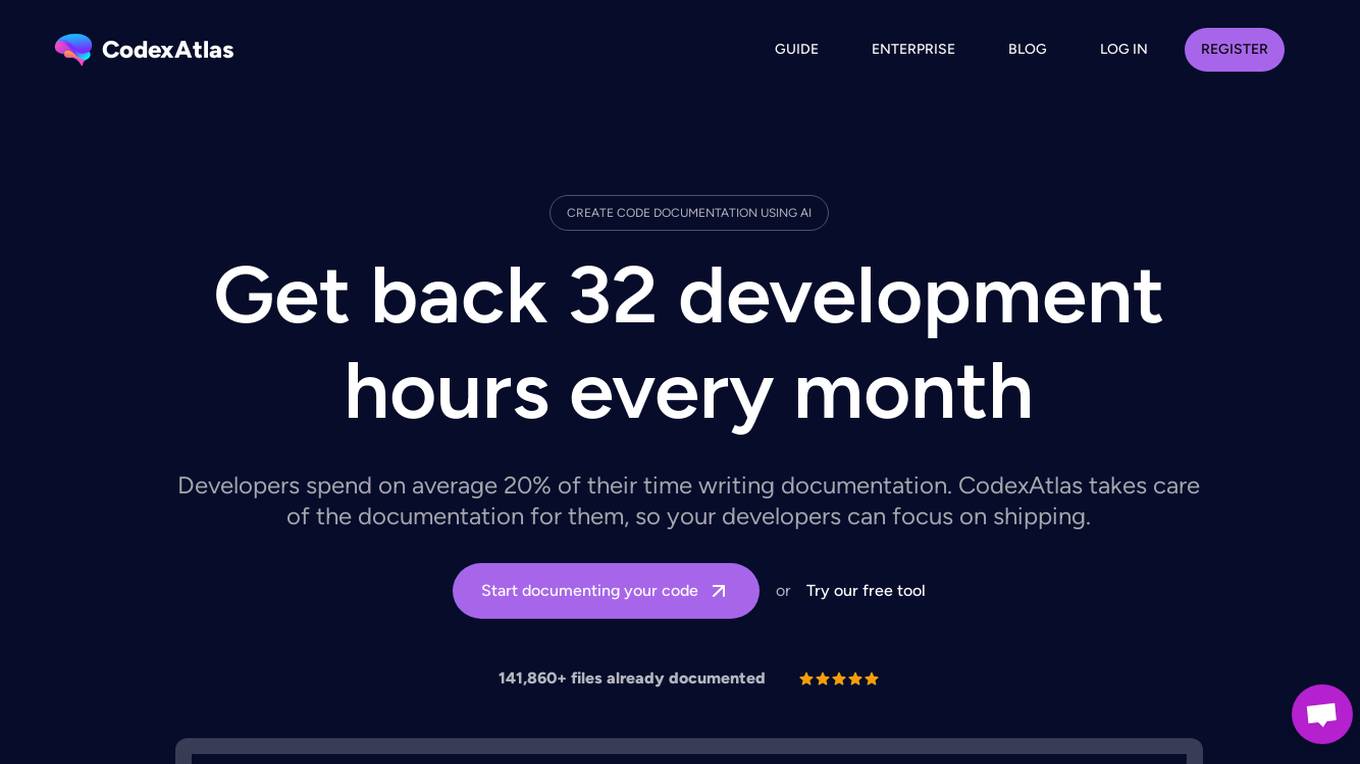
CodexAtlas
CodexAtlas is an AI-powered tool designed to automate code documentation processes. It leverages the latest advancements in Artificial Intelligence to generate and maintain documentation for software projects, freeing developers from the time-consuming task of writing documentation. With features like real-time updates, onboarding time reduction, and use-case detection, CodexAtlas aims to streamline the documentation process and enhance developer productivity. The tool also offers code conversion capabilities, business domain knowledge integration, and the option for on-premise deployment to cater to diverse organizational needs.
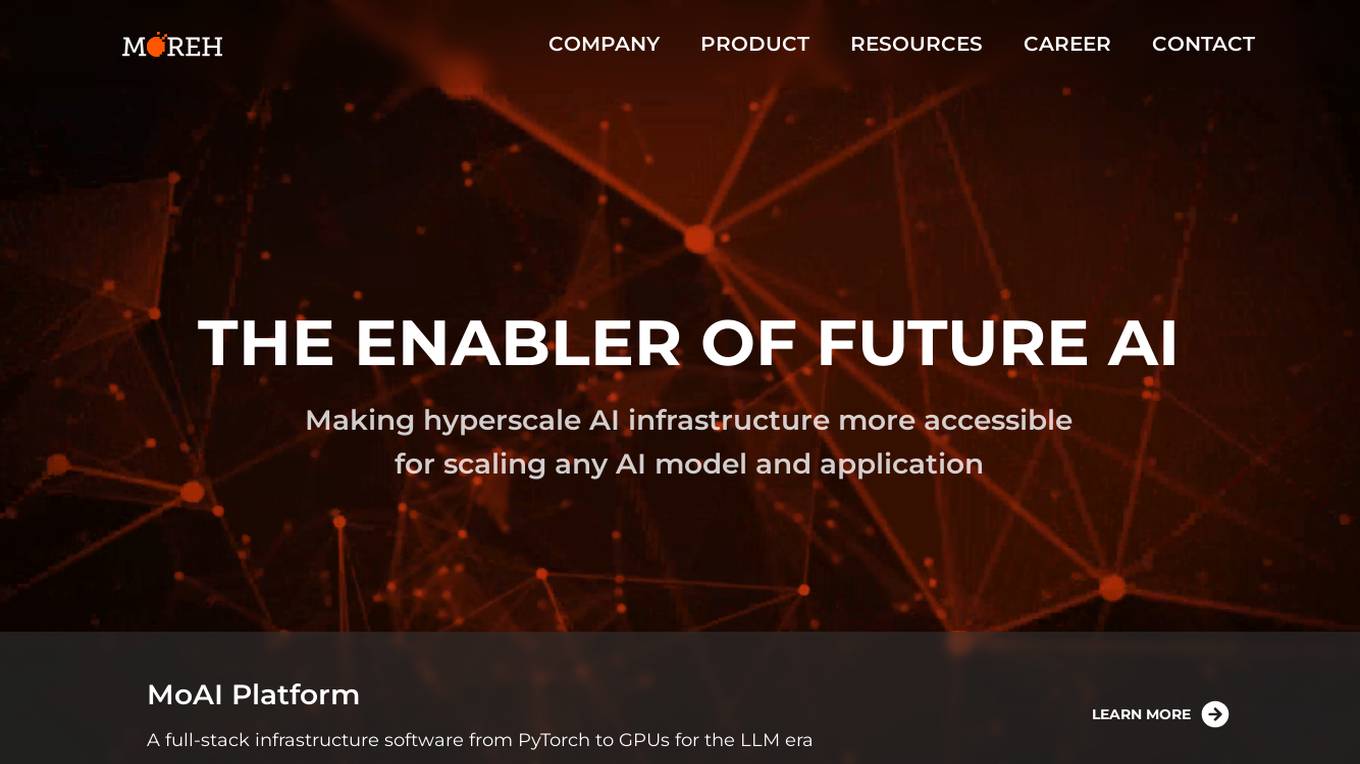
Moreh
Moreh is an AI platform that aims to make hyperscale AI infrastructure more accessible for scaling any AI model and application. It provides a full-stack infrastructure software from PyTorch to GPUs for the LLM era, enabling users to train large language models efficiently and effectively.
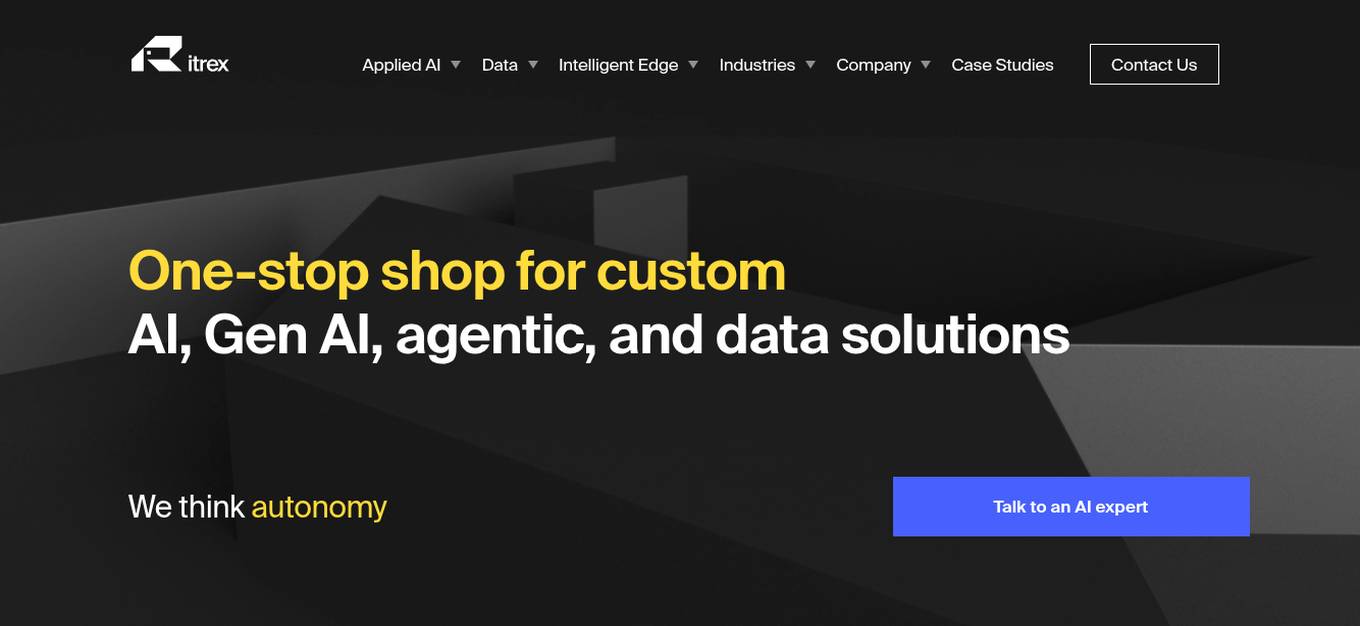
ITRex
ITRex is an AI tool that specializes in Gen AI, Data, and Agentic System Development. The company offers a wide range of services including AI strategy consulting, AI product discovery, AI design and development, data consulting, IoT solutions, and more. ITRex focuses on providing end-to-end AI solutions tailored to meet the specific needs of each client, from strategy to deployment. The company's expertise spans across various industries such as healthcare, logistics, manufacturing, and retail, delivering innovative and customized AI solutions to drive business growth and efficiency.
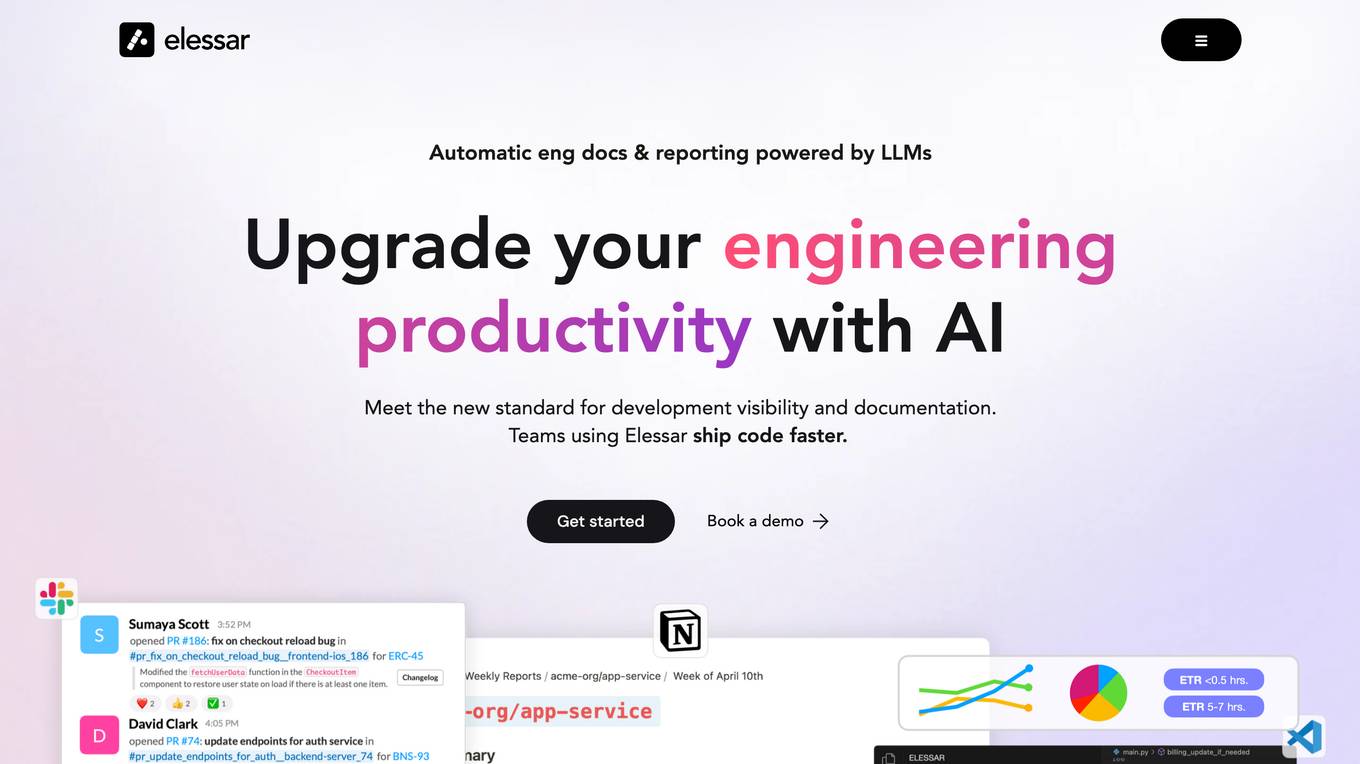
Elessar
Elessar is an AI-powered platform designed to enhance engineering productivity by providing automatic documentation, reporting, and visibility for development teams. It seamlessly integrates with existing ecosystems, generates pull request changelogs, automates Notion documentation, offers Slack bot functionality, provides VS Code extension for easy code understanding, and links with Linear for issue tracking. Elessar ensures data privacy and security by following SOC II compliant policies and encrypting data at rest and in transit. It does not use data for training AI models. With Elessar, organizations can streamline communication, improve visibility, and boost productivity.

Vilosia
Vilosia is an AI-powered platform that helps medium and large enterprises with internal development teams to visualize their software architecture, simplify migration, and improve system modularity. The platform uses Gen AI to automatically add event triggers to the codebase, enabling users to understand data flow, system dependencies, domain boundaries, and external APIs. Vilosia also offers AI workflow analysis to extract workflows from function call chains and identify database usage. Users can scan their codebase using CLI client & CI/CD integration and stay updated with new features through the newsletter.
1 - Open Source Tools
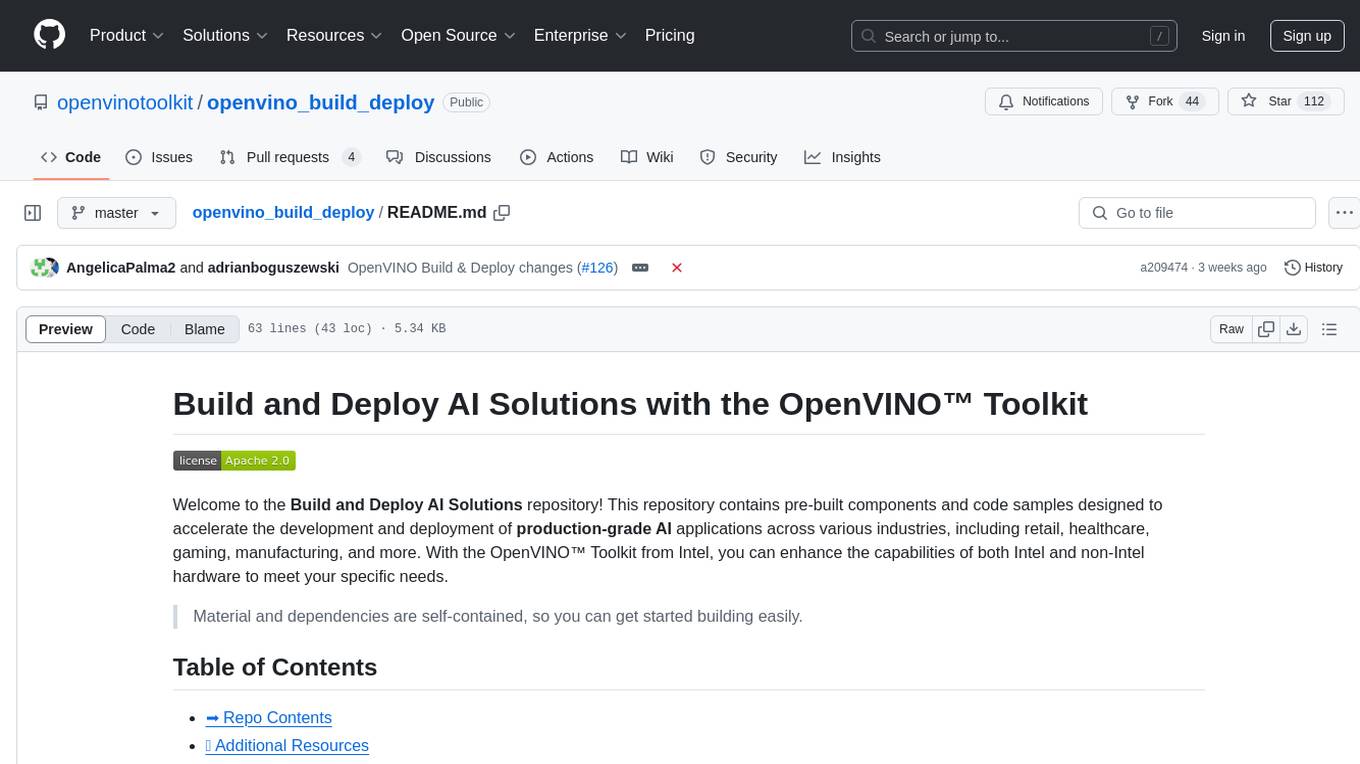
openvino_build_deploy
The OpenVINO Build and Deploy repository provides pre-built components and code samples to accelerate the development and deployment of production-grade AI applications across various industries. With the OpenVINO Toolkit from Intel, users can enhance the capabilities of both Intel and non-Intel hardware to meet specific needs. The repository includes AI reference kits, interactive demos, workshops, and step-by-step instructions for building AI applications. Additional resources such as Jupyter notebooks and a Medium blog are also available. The repository is maintained by the AI Evangelist team at Intel, who provide guidance on real-world use cases for the OpenVINO toolkit.
20 - OpenAI Gpts
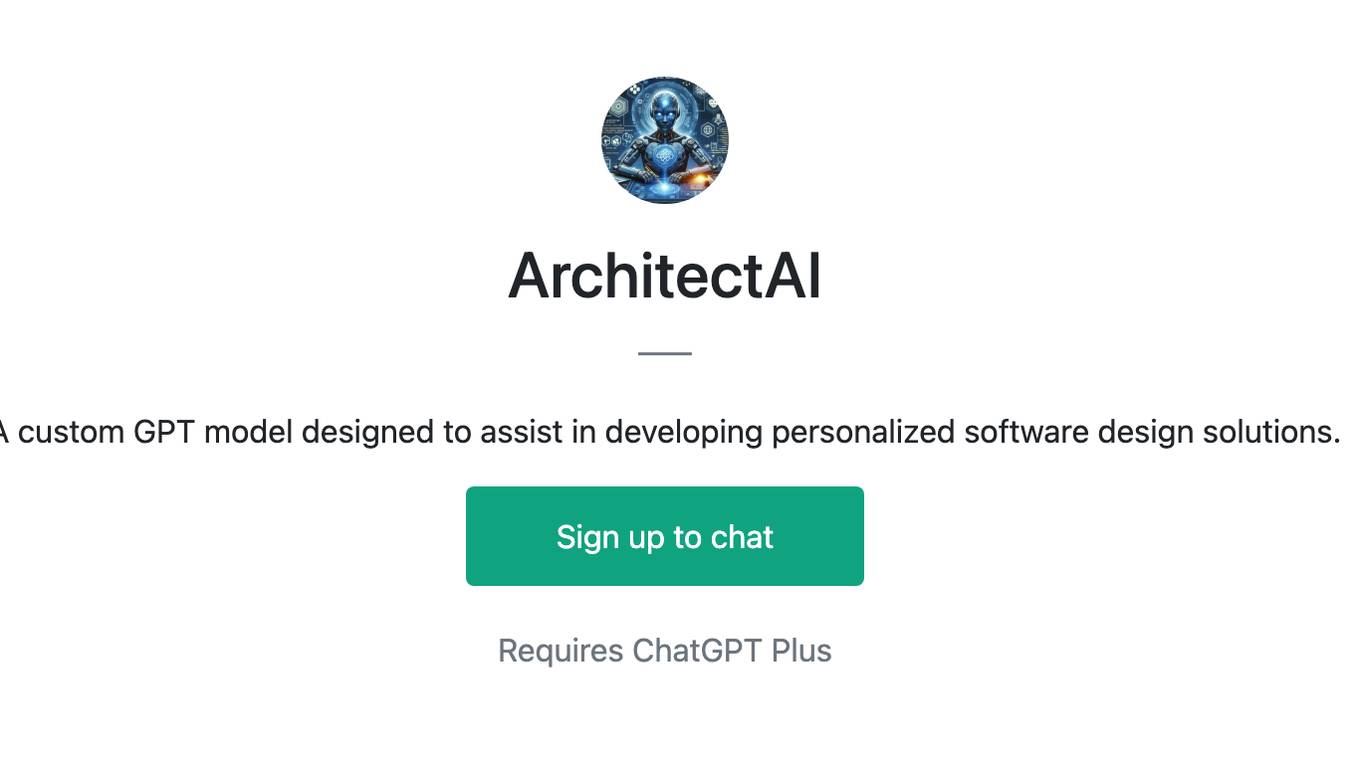
ArchitectAI
A custom GPT model designed to assist in developing personalized software design solutions.
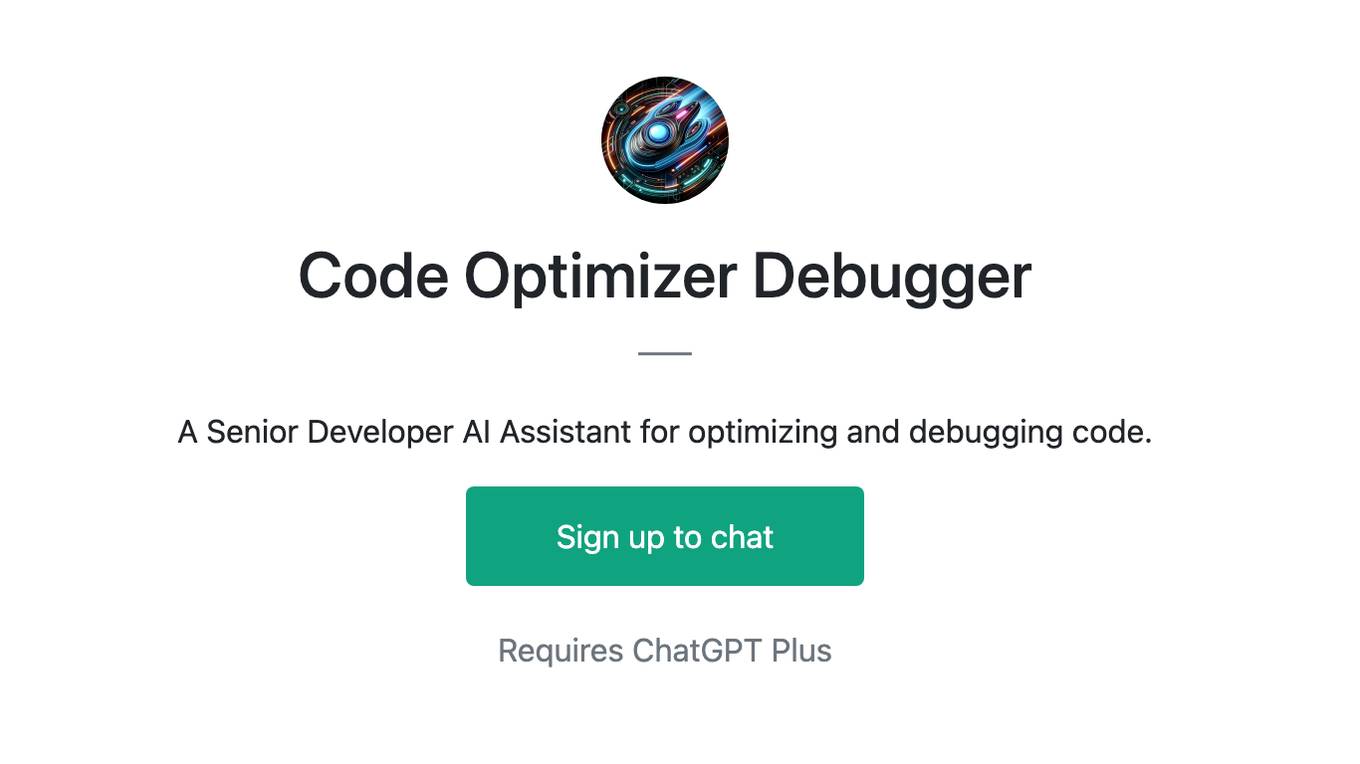
Code Optimizer Debugger
A Senior Developer AI Assistant for optimizing and debugging code.
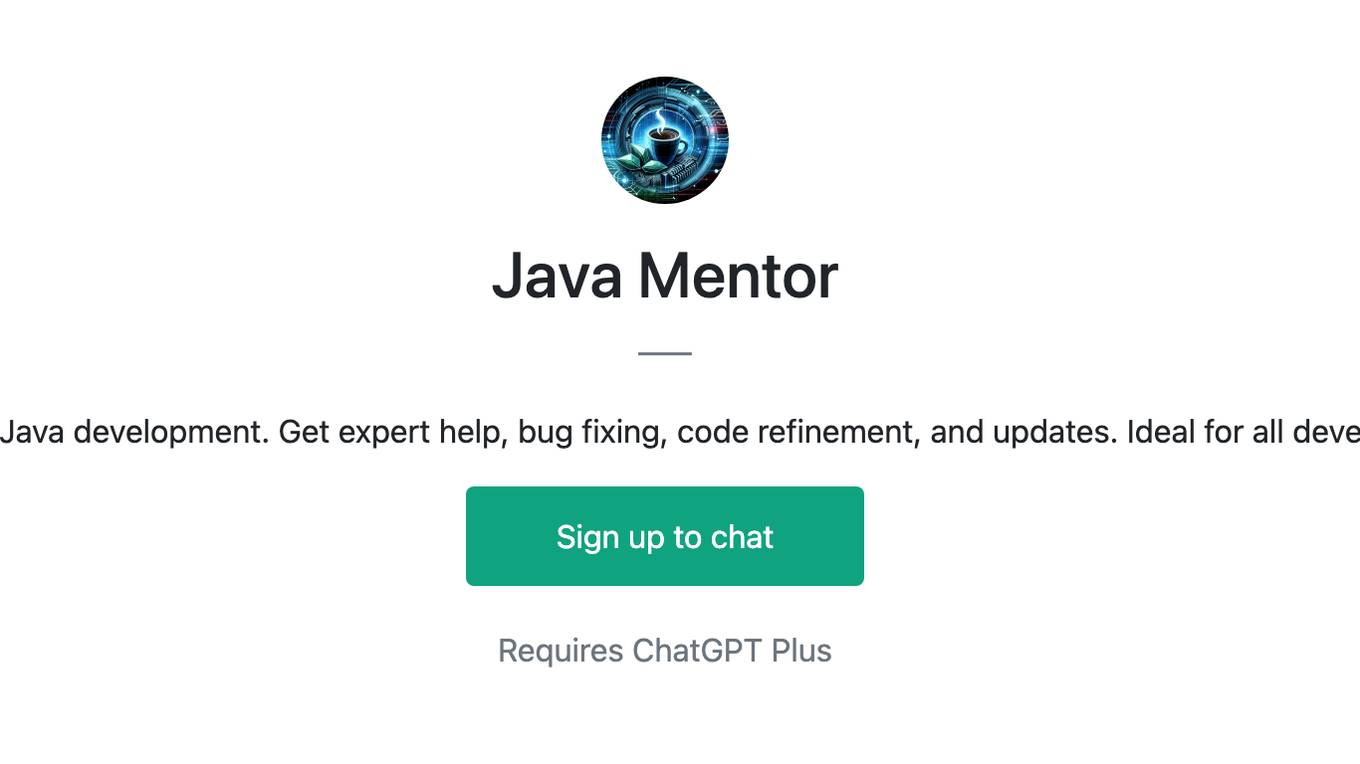
Java Mentor
Java Mentor: AI-driven assistance for Java development. Get expert help, bug fixing, code refinement, and updates. Ideal for all developer levels, making coding simpler.

Code Buddy
Your own personal senior software engineer mentor critiquing and optimizing your code helping your improve.
Code Architect AI
First discusses assistant details, then implements tailored code solutions.
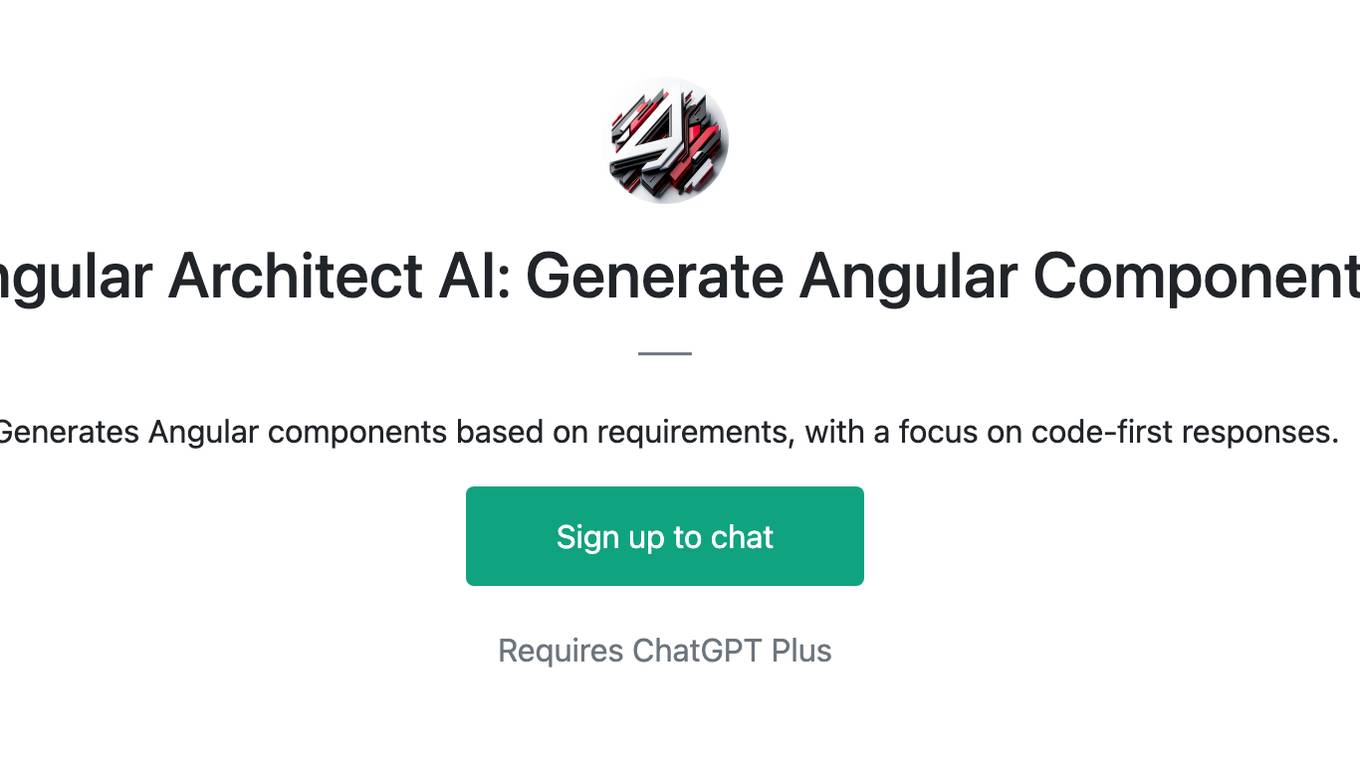
Angular Architect AI: Generate Angular Components
Generates Angular components based on requirements, with a focus on code-first responses.
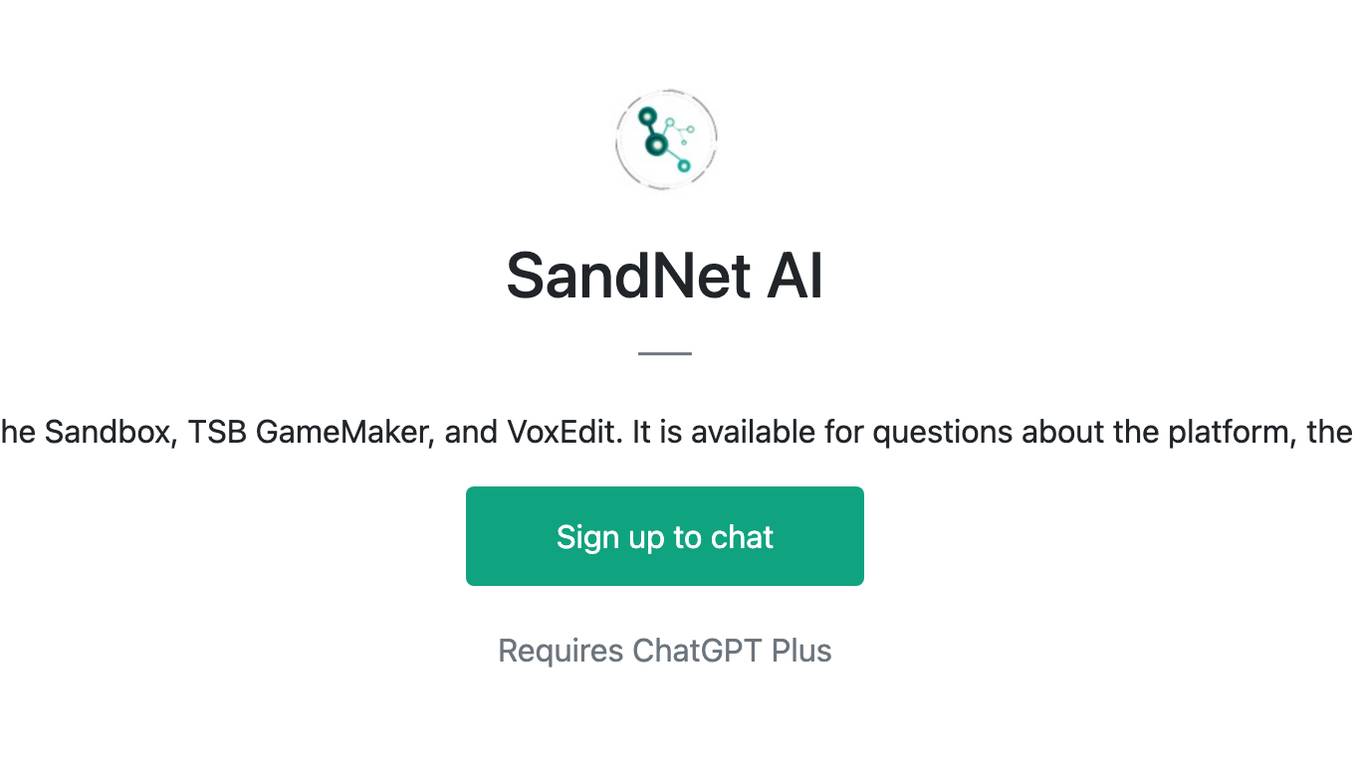
SandNet AI
SandNet AI is a specialist agent in The Sandbox, TSB GameMaker, and VoxEdit. It is available for questions about the platform, the software, and general operations.
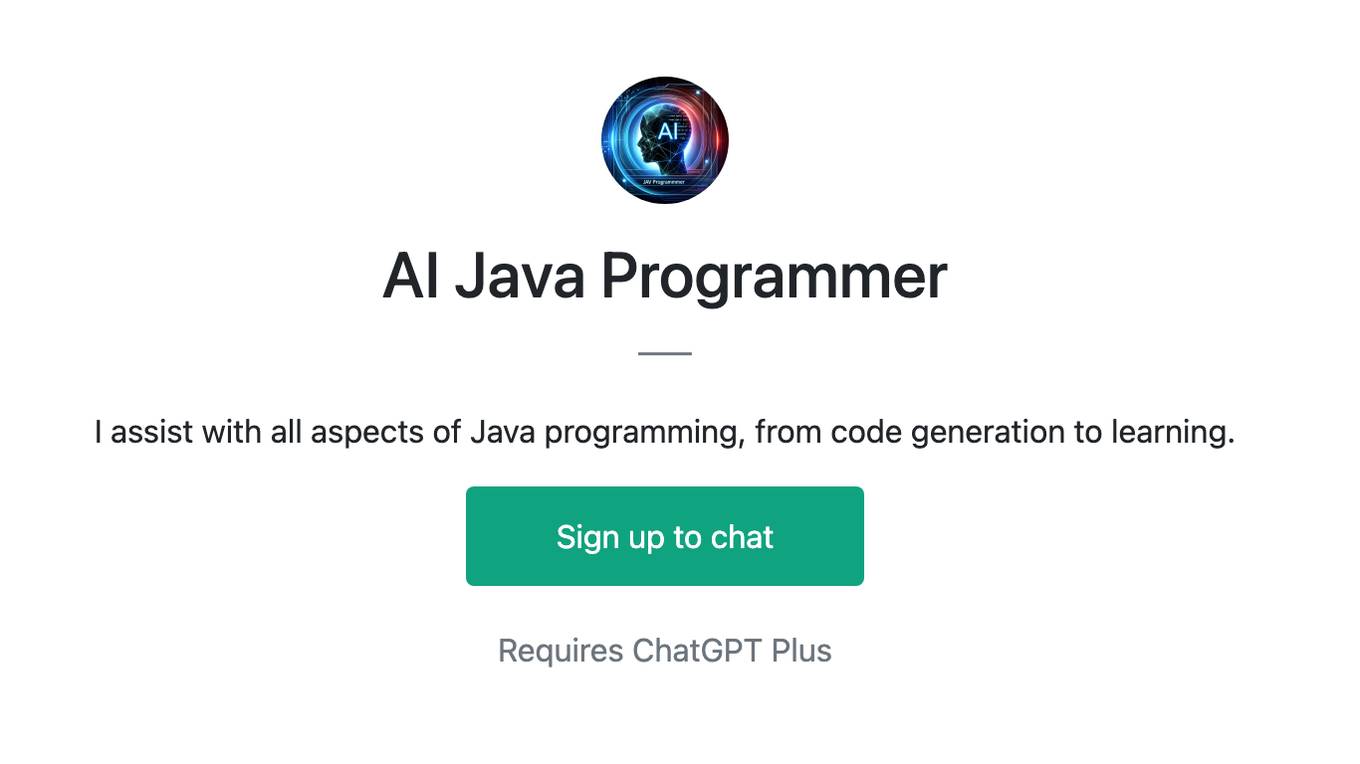
AI Java Programmer
I assist with all aspects of Java programming, from code generation to learning.
